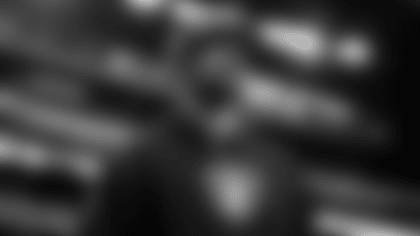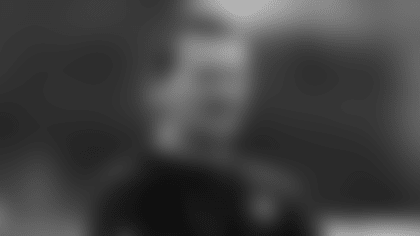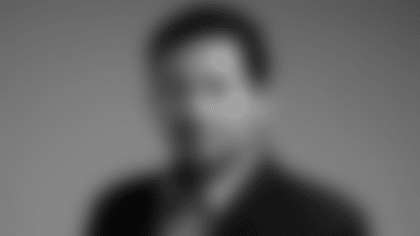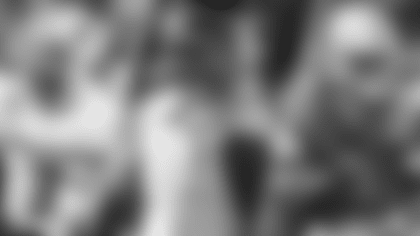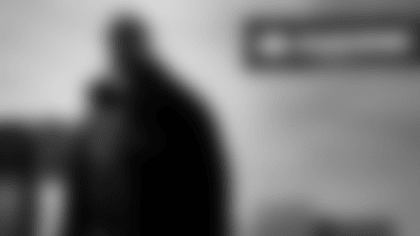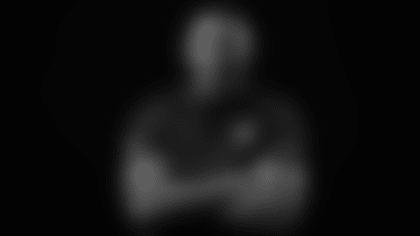Raiders.com is publishing a series of Q&As with members of the Silver and Black's 2025 coaching staff.
Here is the latest discussion with defensive line coach/run game coordinator Rob Leonard. Leonard served as the Raiders defensive line coach from 2023-24 and returns for his third season working alongside defensive coordinator Patrick Graham.
Read through to learn more about how Leonard got his start in coaching, his thoughts on the Raiders' offseason moves and more.
Q: What has the experience been like staying on with the new staff for this upcoming season?
Leonard: That month of January, there were a lot of things happening, you know what I mean? Who's it going to be? You don't know what to believe sometimes. What was cool is Pete [Carroll] reached out to me before he even had the job, so we started a relationship then, which was awesome. Any chance you get to work for a Hall of Fame coach, if that opportunity were to arise, I certainly wasn't going to pass on it. I sat there and if you think about it, I've been really blessed and fortunate. I got to work for Tom Coughlin, John Harbaugh and now Pete Carroll. How many people can say that? When he got the job, obviously, I was excited, excited about everything you heard and then actually getting to talk to him about what that would look like in reality, it was good.
Q: What were your first impressions of Pete Carroll?
Leonard: Just positive energy, loves his job, passionate. I think shared values are always important [for] both players and coaches alike. You've got to love what you do, and you can't hide that enthusiasm if you have it or if you don't. Some people are pessimists, some people are optimists. He's an optimist. He sees the good things you've got going on and how to build. I think there's an art to building something from the ground up, and his experience speaks for itself.
Q: Patrick Graham also stayed on as defensive coordinator. How excited are you to continue working with him?
Leonard: I love Pat. I've been with Pat in New York [Giants], Miami, here. I owe Pat a lot. Loyalty means a lot to me. I'll never forget the call he gave me to go to Miami to coach linebackers and I had all 14 guys in my room. Then to bring me here, that will always mean a lot to me. I sincerely mean this, I want him to be a head coach more than I even ever would for myself. I want him to succeed more so than me. To watch him grow from the defensive line coach in New York to where he is now, watching him grow as a leader and as a coordinator, it's been awesome. I wasn't sure if he was going to come back, then he did and I couldn't be more excited.
Q: You're getting Malcolm Koonce and Adam Butler back on new contracts, Christian Wilkins is working his way back from injury and Maxx Crosby just got a multi-year extension. What are your thoughts on getting those guys back and what they can do this season?
Leonard: I'm thrilled. The continuity, the brotherhood, the banked reps that they have together, that's what wins. Continuity wins. Being on the same page, rushing four as one, it sets the standard for young guys below them because we have to create some depth. But, man, when a position group takes ownership of their position, which always comes from them as a unit – I always think of my room more collectively as how we function as a unit than individually – it's a fun thing to watch. You can feel the energy.

Raiders + Allegiant Stadium App
Download our official Raiders + Allegiant Stadium app for team & stadium modes, content, alerts and manage your tickets.
Q: It was pretty cool to see the whole defensive staff show up when Maxx Crosby signed his extension. Why was it important to you to be there in that moment?
Leonard: Just supporting your brother. It's that simple. You're happy for them. We talk about team accolades so much and a chance to celebrate an individual accomplishment of a guy getting a contract that's kind of like the face of the organization, that's amazing. In whatever role I've had in helping him with that since he's got here, you're just proud. Proud to be a part of it. I'm proud to see Christian [Wilkins] get paid from when I saw who he was as a rookie at Miami, proud to see Maxx do that. K'Lavon [Chaisson] went and got a big deal. These guys are changing their lives, and it's just the result of the process you're preaching every day. It re-confirms to you as a coach that regardless of wins or losses, what you're coaching is the right thing. And that's what coaching is, right? Taking the guys to be the best version of themselves, who they want to be, and it's very fulfilling from that standpoint.
Q: In addition to defensive line coach, you also added run game coordinator to your title this season. For people who may not know what that means, can you describe what those added responsibilities are?
Leonard: [As] run game coordinator, you come up with a plan. You're really always looking at how you would be attacked. You're trying to get your mindset from a big picture standpoint, as well as carry the responsibilities of coaching your position. Everything's interactive and there's constant talking, but you're kind of the point man that he [Patrick Graham] can say, "OK, Robbie's handling that." You present the plan to him. He gives his two cents. You're talking with JG [John Glenn], our linebacker's coach, talking about the safeties in the fit, the safeties not in the fit, the corners in the fit. I guess it's a Goodyear Blimp view of what's going on, really with the run and the pass game from a front standpoint and communicating that with the head coach.
Q: When you have a new staff coming together, how do you attack the offseason?
Leonard: Getting on the same page, going over basic offensive and defensive terminology, including with scheme. How we talk about routes, how we talk about formations, runs, rotations, what are our stunts. Just terms within scheme. Then, you're leading to our personnel. What do we have? What do we not have? How do we get this guy in that spot? How many things are we asking certain guys to do? So, it changes every day, but it ultimately leads to putting a plan together for these guys to build a foundation when they walk in the door here for how they improve individually, which is most important to be honest.
Q: You're in your third year with the Raiders. How do you think you've grown as a coach and as a person since you got to this organization?
Leonard: You grow every day and every year in this profession. That's my mindset all the time, no different than the players. How do I coach it better? If something's not getting done, why is it not getting done? What can I do better to fix that? What's best in what situation? You get so lost in your own mindset just coaching your position, so I'd say I've grown from working with Pat on coordinating the front, getting a big-picture view situationally, team building and how you get the best out of certain people.
Q: I read that you originally wanted to play golf in college, but you ended up playing football at W&J and then at NC State. How did football become your path and what led you to NC State?
Leonard: I was always this undersized kid. Division I football wasn't on my mind, but I was pretty good. My freshman, sophomore and junior year of high school, I would play football in Pittsburgh in the fall, and I would move to North Carolina in January to live with my dad by myself in the spring. I never finished a full year of school in one place until my senior year. I played football at Moon High School my freshman year. AQ Shipley was the big five-star recruit. I basically got recruited because he did. I was the running back, corner, returned kicks, all that. When he went to Ohio State on an official visit, I got to go. When he went to Notre Dame, I got to go. But when I would go live with my dad, we lived on this public [golf] course named Lochmere in Cary. I didn't have a car as a freshman, so I'd go to the public course and start whacking balls and played on the high school golf team. I got pretty good and was like, I want to stay in North Carolina and be near my dad. But I'll never forget a lifechanging moment. I'm driving home with him from a tournament at Pinehurst and he says, "You're going to finish what you start. You're going back to Pittsburgh for your senior year of football." I did and that's where I went on those official visits. I think I'm going to Penn State and then they call me in April of my senior year. They say, "Listen, your grades stunk. We couldn't get you into school." So, I went to W&J with a full intent to transfer. I applied to NC State, UNC and Appalachian State. My high school coach played with Chuck Amato at NC State, so I walked on there.
Q: How did the transition from player to coach happen?
"When I got to NC State, I was just pissed. I was like, I can't get a scholarship over this guy, this guy and this guy? I told my position coach, "I'm either going to get kicked off the team or put on scholarship, but one of these is happening." I eventually got a scholarship, still one of my most proud moments of that first year. My senior year, they said, "We're moving you to field linebacker." I said, "I'm transferring. I weigh 200 pounds. How am I going to play linebacker?" I bulked up to like 210. My folks were like, "Stick out the spring and see if you like it." I started and I loved it. Then, it was hard after you start and have a good year. I did a tryout for the Steelers, but I wasn't meant to play in this league. I was coaching high school ball, selling toner cartridges, caddying doing a bunch of side jobs while working out. I wanted to keep playing so I signed to play in Germany with a team called the Essen Cardinals in the GFL [German Football League]. I was leaving in a week and NC State offered me to be a GA [Graduate Assistant]. I didn't want to take it. I didn't want anything to do with coaching. I ended up taking it. We hired this guy named Jon Tenuta. He taught me more ball in three years then people will learn in a lifetime of coaching. He was hard on me, but it really set the foundation that this is what I want to do and I kind of went on my way from there.
Q: You've been around the sport for a long time now. How do you disconnect from football?
Leonard: If you have four kids and you want to be elite at this profession, there isn't time for anything else. It is hard to disconnect. At least for me, it's like you're running at a thousand miles an hour and then the season's over and you're like, shouldn't I be somewhere? Don't I have something to do? For me, it's just peace and quiet. Going away with my wife, no kids for two or three nights, hitting a reset. Then I come back and I'm like, all right, I've got to be a present father, trying to carry the aspects of the standard I have for being a coach to my home life. I had a pastor one time that used to say you just have to be intentional with your time. It's not the amount of time; it's making it count. So, in all those moments of off time, instead of vegging out, I try to be present with my kids and take time with me and the wife.
Head inside Intermountain Health Performance Center to see photos of the Las Vegas Raiders during an offseason program workout.
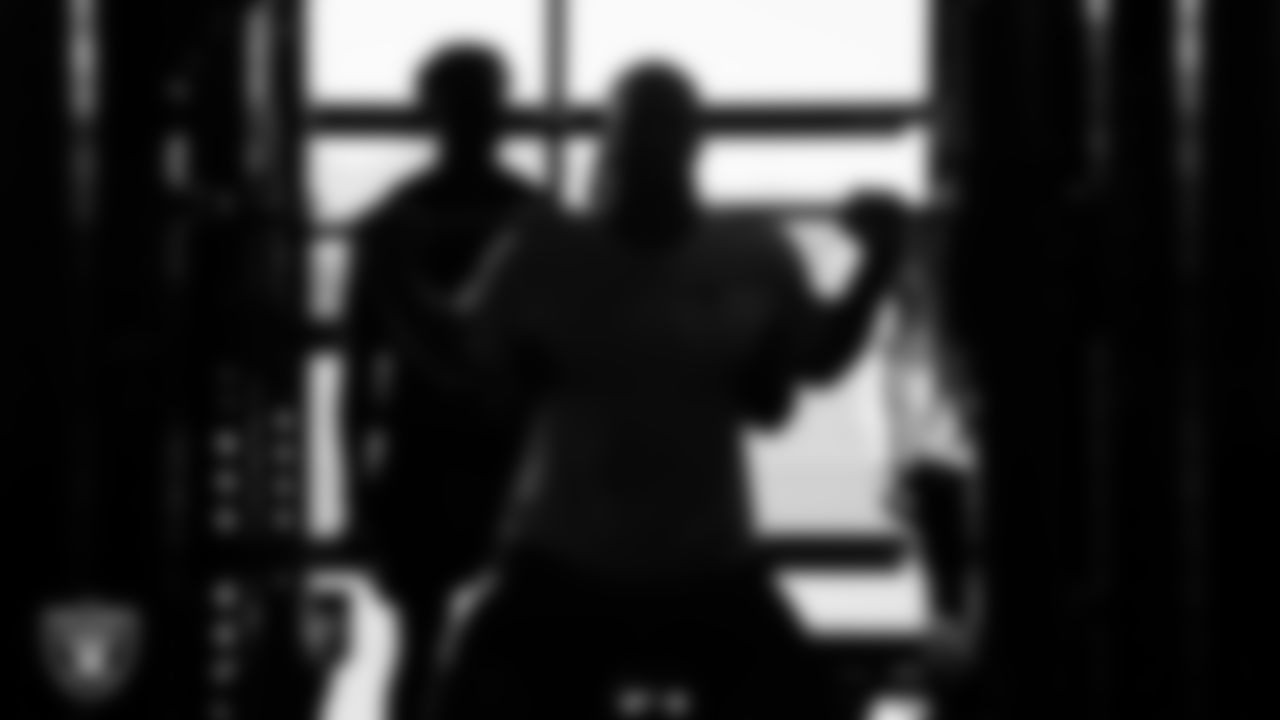
Las Vegas Raiders defensive end Charles Snowden (49) at a workout during phase one of the offseason program at Intermountain Health Performance Center.

Las Vegas Raiders defensive tackle Christian Wilkins (94) at a workout during phase one of the offseason program at Intermountain Health Performance Center.
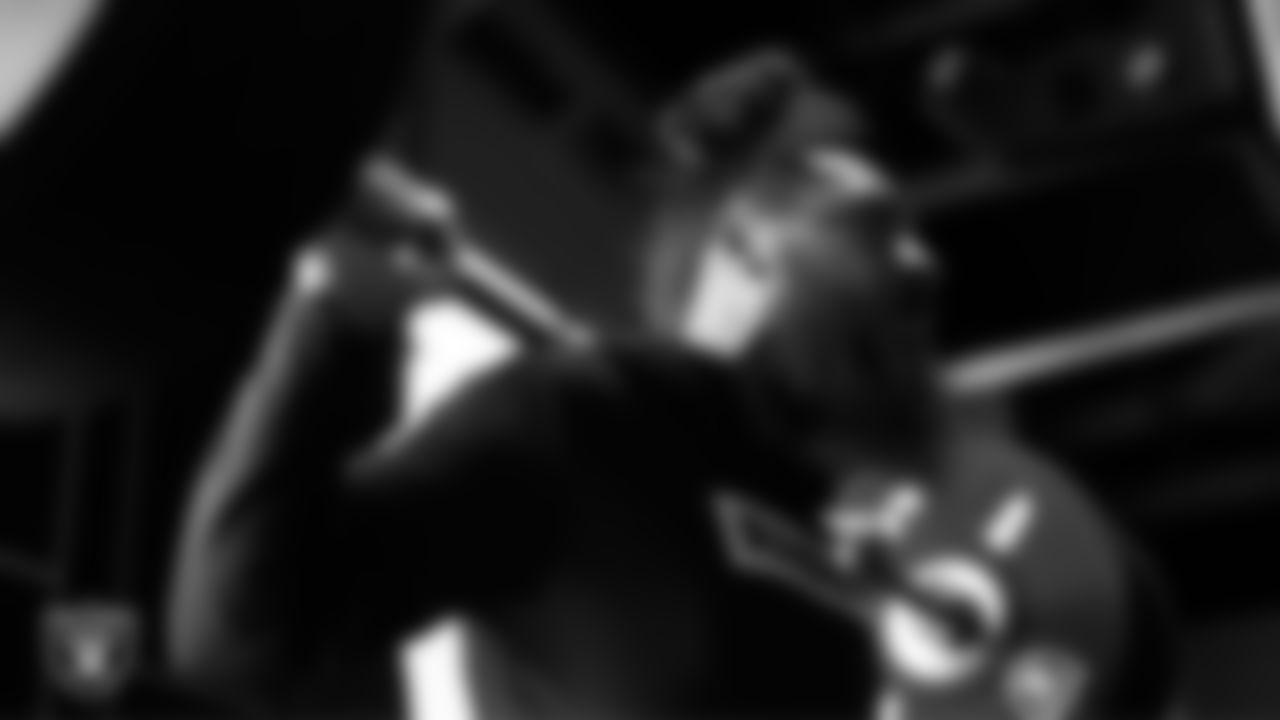
Las Vegas Raiders linebacker Kana'i Mauga (43) at a workout during phase one of the offseason program at Intermountain Health Performance Center.
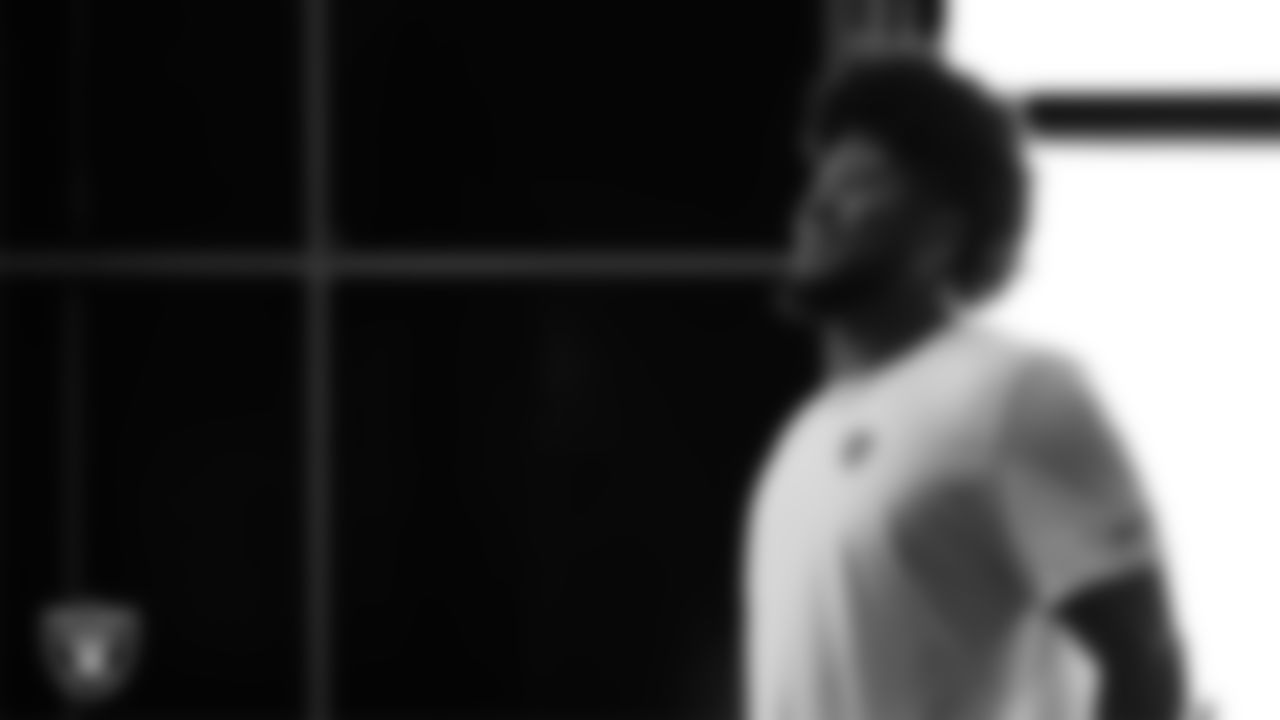
Las Vegas Raiders defensive tackle Jonah Laulu (96) at a workout during phase one of the offseason program at Intermountain Health Performance Center.
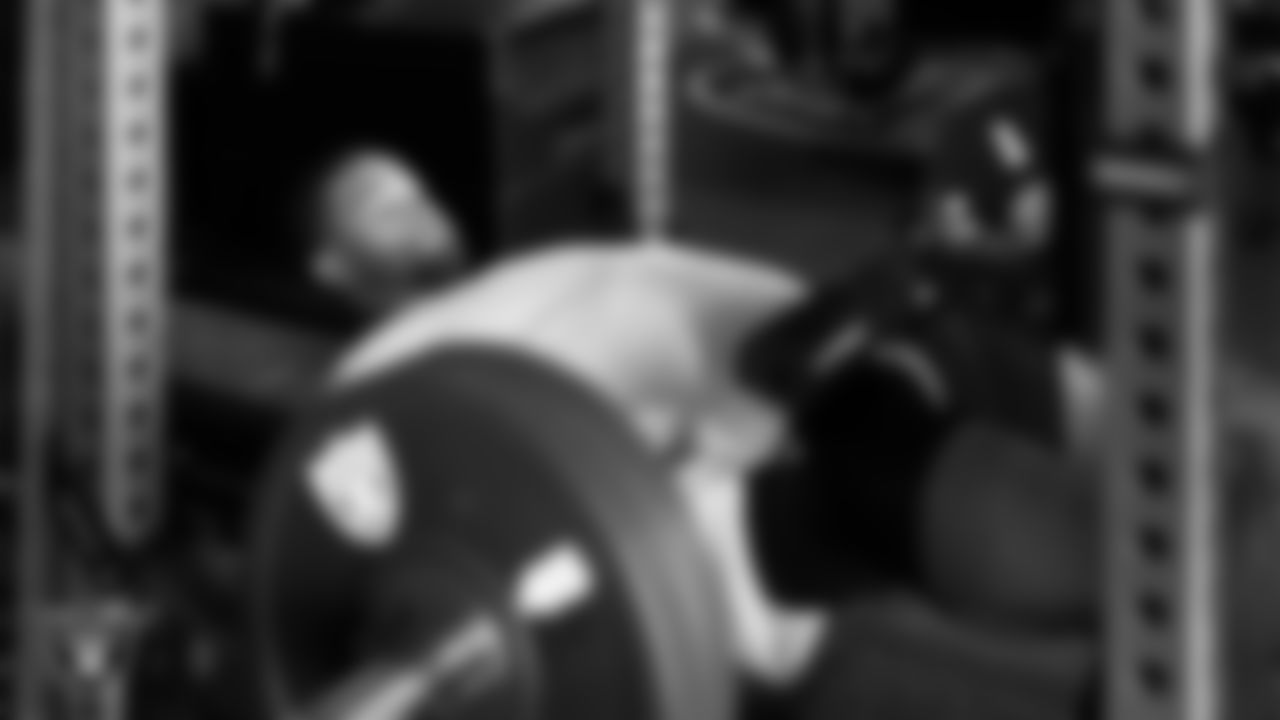
Las Vegas Raiders safety Jeremy Chinn (11) at a workout during phase one of the offseason program at Intermountain Health Performance Center.
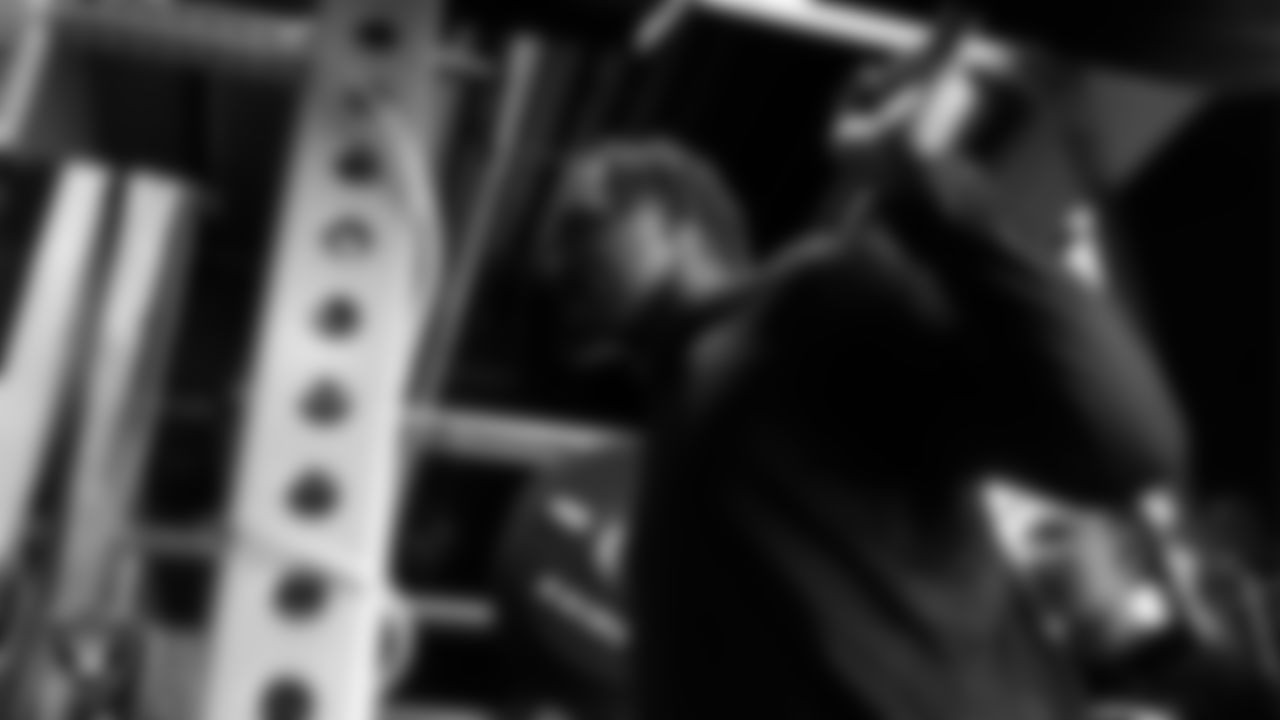
Las Vegas Raiders defensive tackle Zach Carter (93) at a workout during phase one of the offseason program at Intermountain Health Performance Center.

Las Vegas Raiders linebacker Jackson Mitchell (48) at a workout during phase one of the offseason program at Intermountain Health Performance Center.
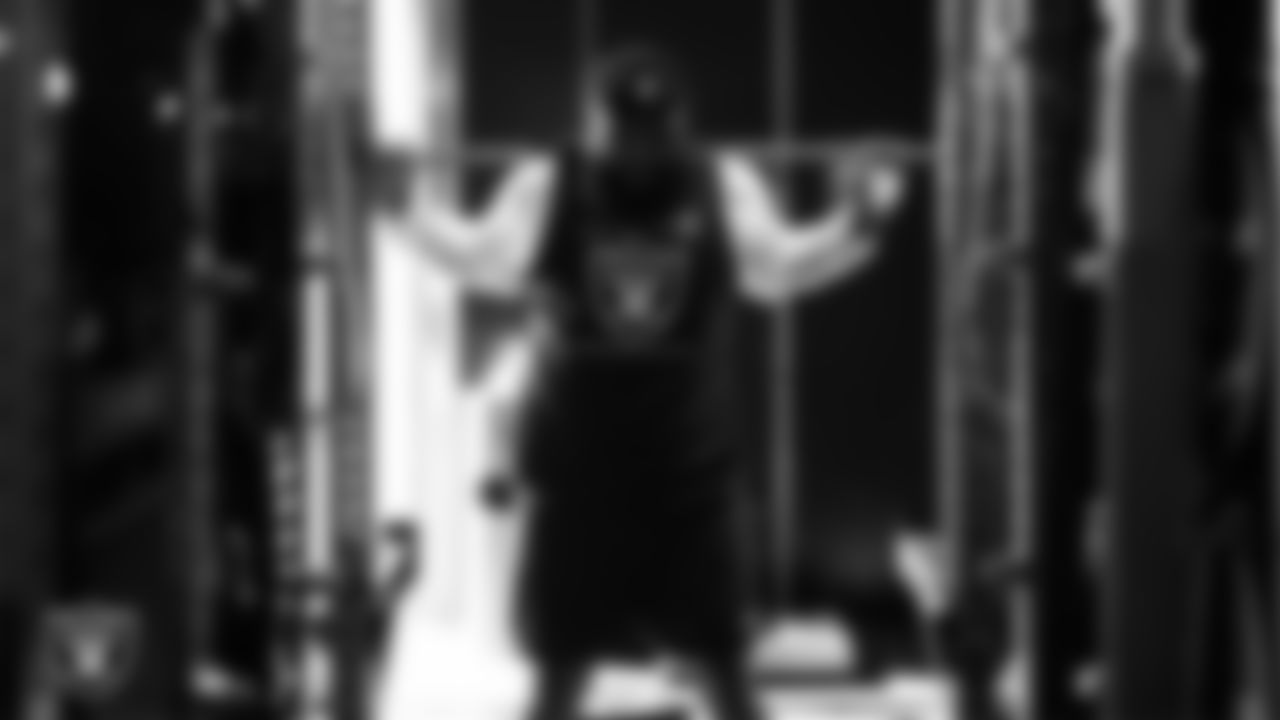
Las Vegas Raiders defensive tackle Christian Wilkins (94) at a workout during phase one of the offseason program at Intermountain Health Performance Center.

Las Vegas Raiders defensive tackle Zach Carter (93) at a workout during phase one of the offseason program at Intermountain Health Performance Center.
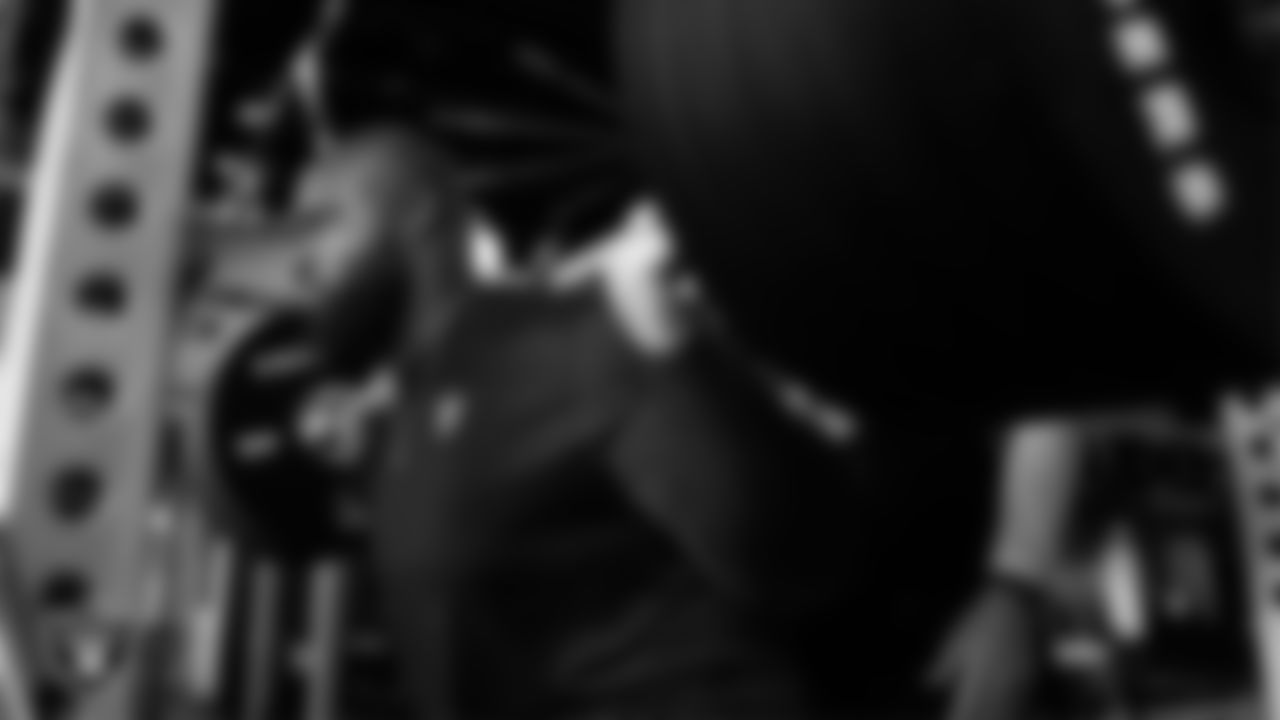
Las Vegas Raiders defensive tackle Matthew Butler (91) at a workout during phase one of the offseason program at Intermountain Health Performance Center.

Las Vegas Raiders linebacker Tommy Eichenberg (45) at a workout during phase one of the offseason program at Intermountain Health Performance Center.

Las Vegas Raiders cornerback Jakorian Bennett (0) at a workout during phase one of the offseason program at Intermountain Health Performance Center.

Las Vegas Raiders cornerbacks Sam Webb (27), Eric Stokes (22) and Kyu Blu Kelly (36) at a workout during phase one of the offseason program at Intermountain Health Performance Center.
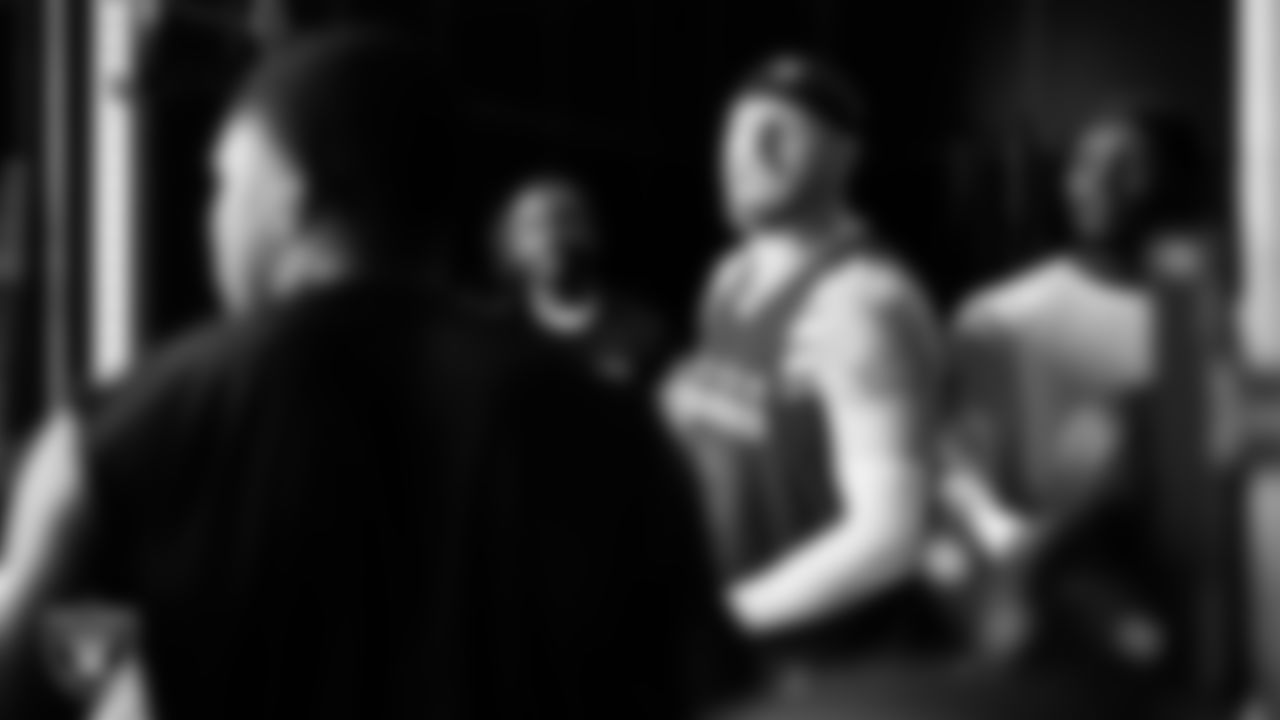
Las Vegas Raiders defensive end Maxx Crosby (98) at a workout during phase one of the offseason program at Intermountain Health Performance Center.
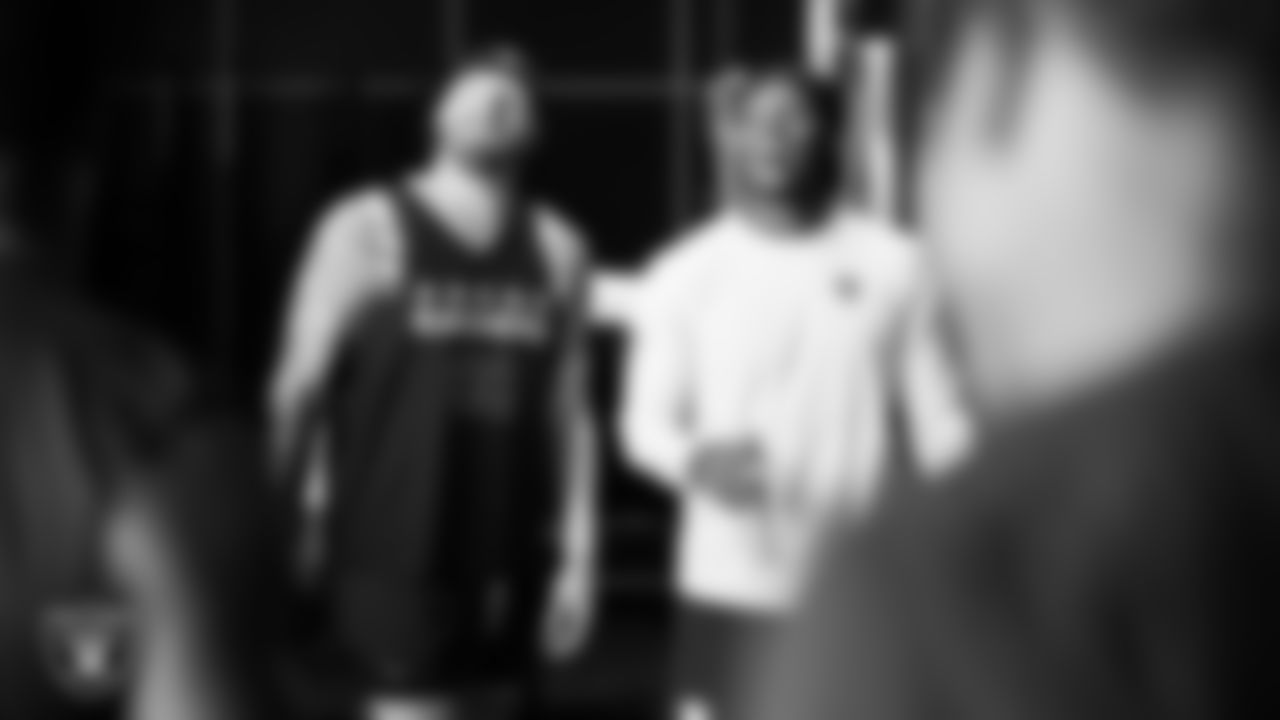
Las Vegas Raiders defensive end Maxx Crosby (98) and safety Lonnie Johnson Jr. (32) at a workout during phase one of the offseason program at Intermountain Health Performance Center.

Las Vegas Raiders safety Isaiah Pola-Mao (20) at a workout during phase one of the offseason program at Intermountain Health Performance Center.

Las Vegas Raiders cornerback Jakorian Bennett (0) at a workout during phase one of the offseason program at Intermountain Health Performance Center.

Las Vegas Raiders linebacker Amari Gainer (53) at a workout during phase one of the offseason program at Intermountain Health Performance Center.

Las Vegas Raiders safety Lonnie Johnson Jr. (32) at a workout during phase one of the offseason program at Intermountain Health Performance Center.
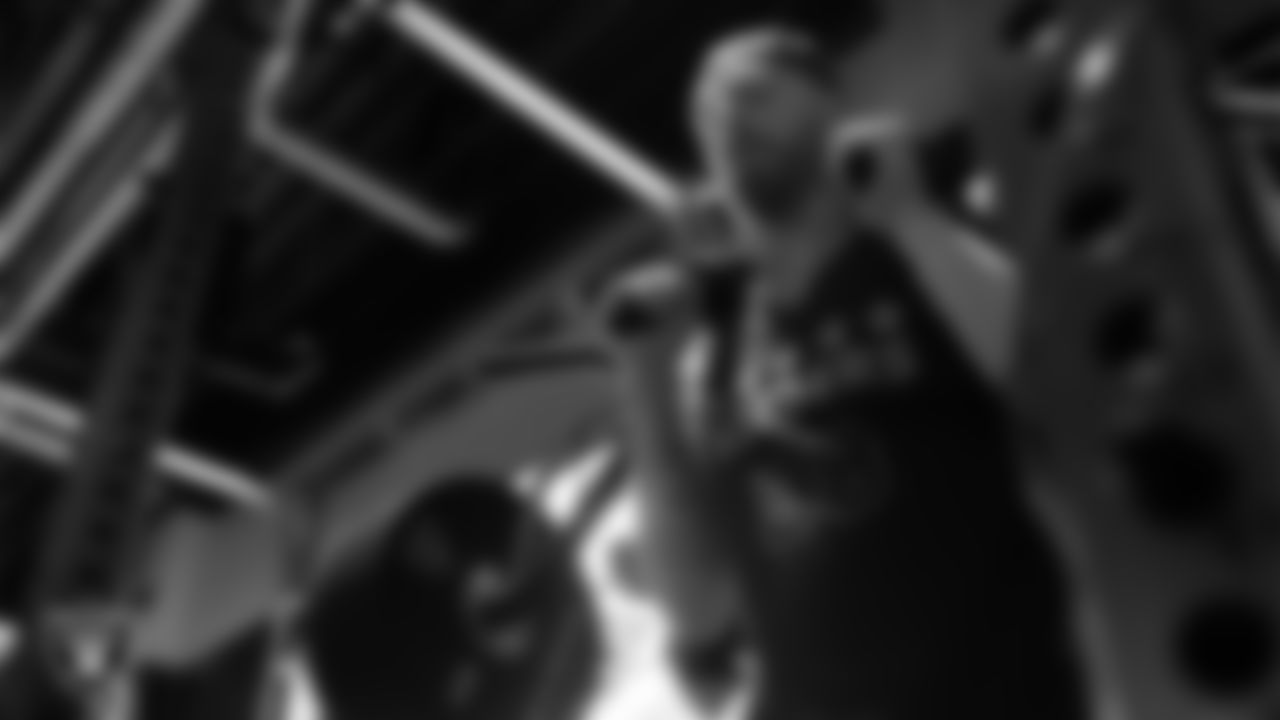
Las Vegas Raiders defensive end Maxx Crosby (98) at a workout during phase one of the offseason program at Intermountain Health Performance Center.

Las Vegas Raiders safety Isaiah Pola-Mao (20) at a workout during phase one of the offseason program at Intermountain Health Performance Center.

Las Vegas Raiders cornerback Kyu Blu Kelly (36) at a workout during phase one of the offseason program at Intermountain Health Performance Center.

Las Vegas Raiders head strength and conditioning coach A.J. Neibel at a workout during phase one of the offseason program at Intermountain Health Performance Center.
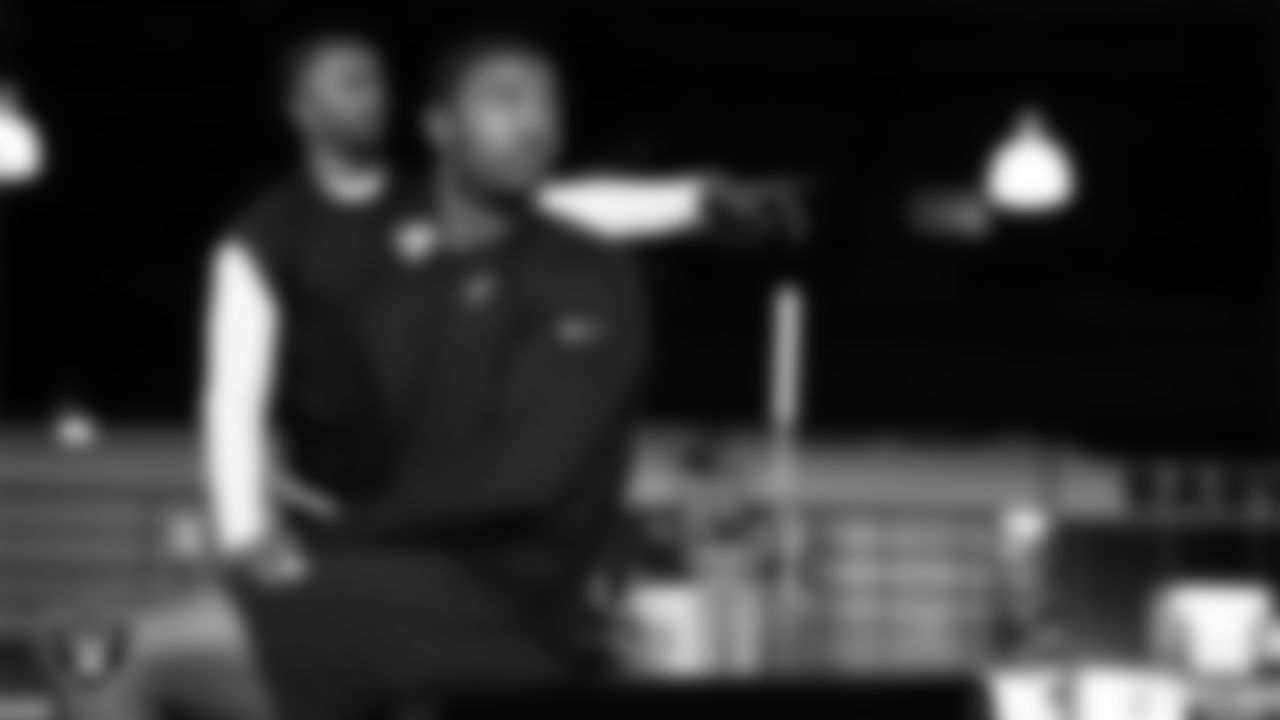
Las Vegas Raiders safety Trey Taylor (37) at a workout during phase one of the offseason program at Intermountain Health Performance Center.
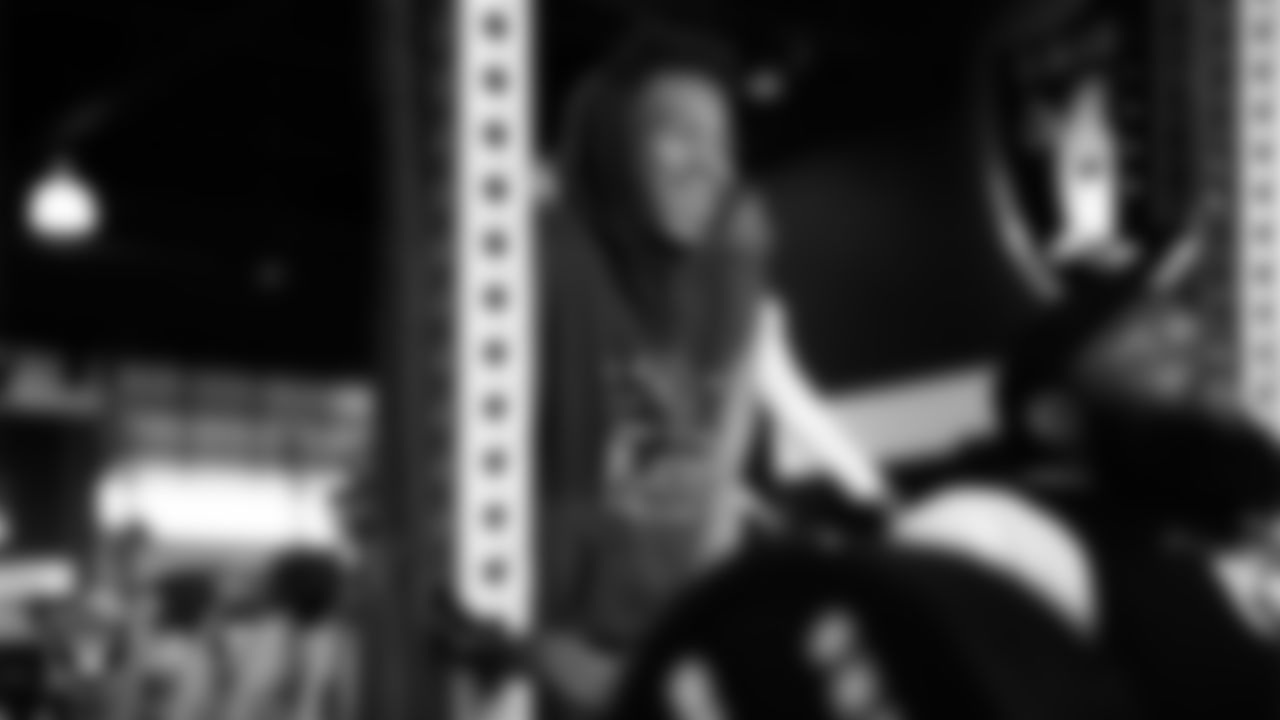
Las Vegas Raiders defensive end Malcolm Koonce (51) at a workout during phase one of the offseason program at Intermountain Health Performance Center.
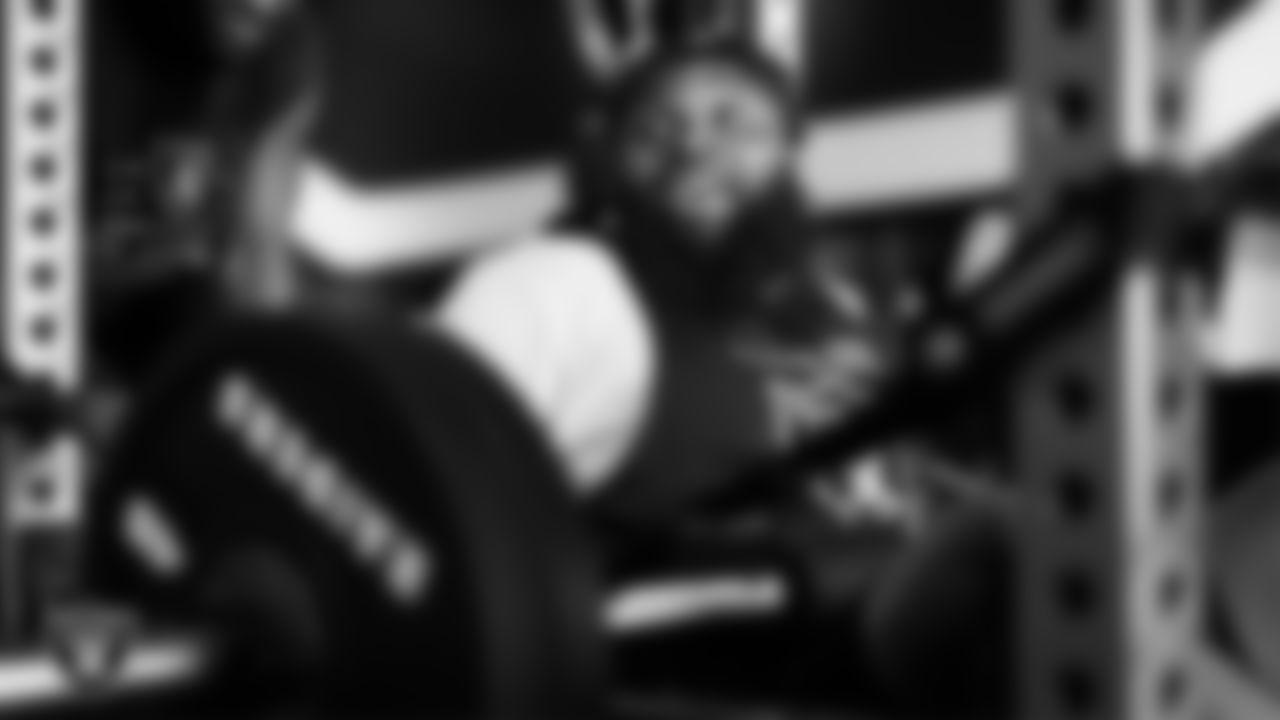
Las Vegas Raiders defensive tackle Christian Wilkins (94) at a workout during phase one of the offseason program at Intermountain Health Performance Center.

Las Vegas Raiders linebacker Brandon Smith (47) at a workout during phase one of the offseason program at Intermountain Health Performance Center.

Las Vegas Raiders linebacker Tommy Eichenberg (45) at a workout during phase one of the offseason program at Intermountain Health Performance Center.

Las Vegas Raiders defensive tackle Christian Wilkins (94) and linebacker Elandon Roberts (52) at a workout during phase one of the offseason program at Intermountain Health Performance Center.

Las Vegas Raiders defensive tackle Christian Wilkins (94) and linebacker Elandon Roberts (52) at a workout during phase one of the offseason program at Intermountain Health Performance Center.
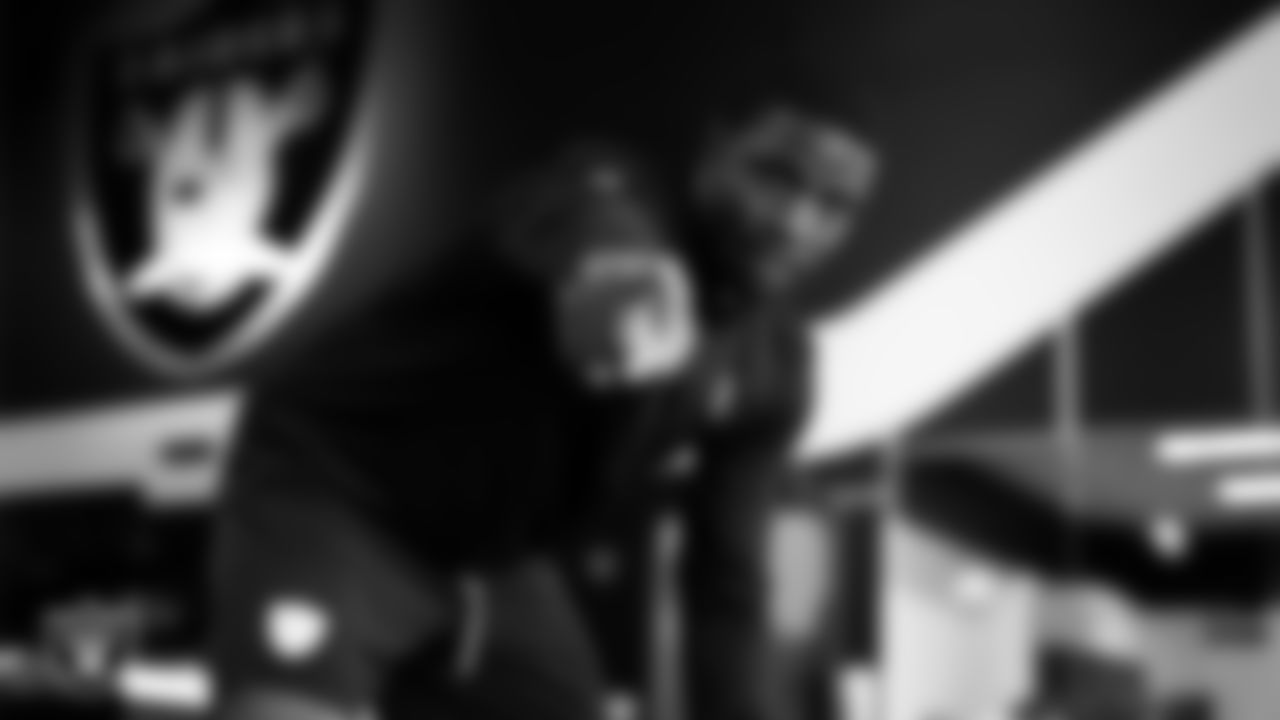
Las Vegas Raiders safety Trey Taylor (37) at a workout during phase one of the offseason program at Intermountain Health Performance Center.
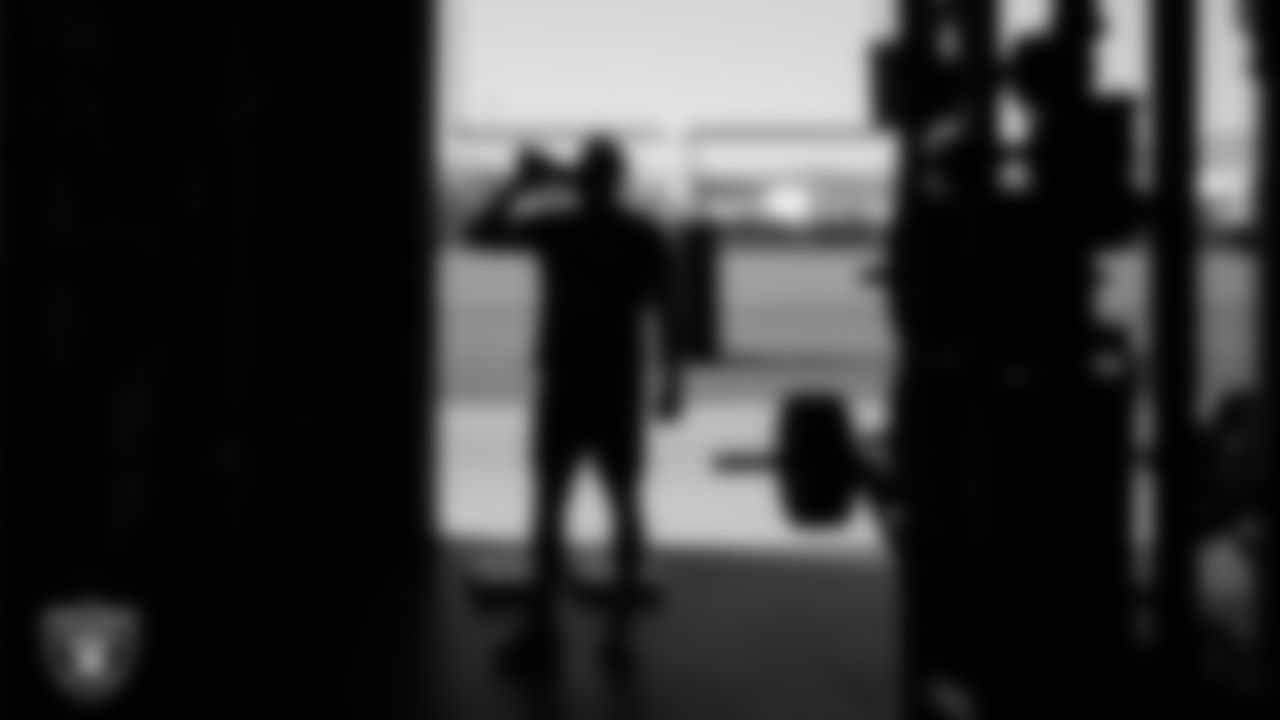
Las Vegas Raiders linebacker Tommy Eichenberg (45) at a workout during phase one of the offseason program at Intermountain Health Performance Center.
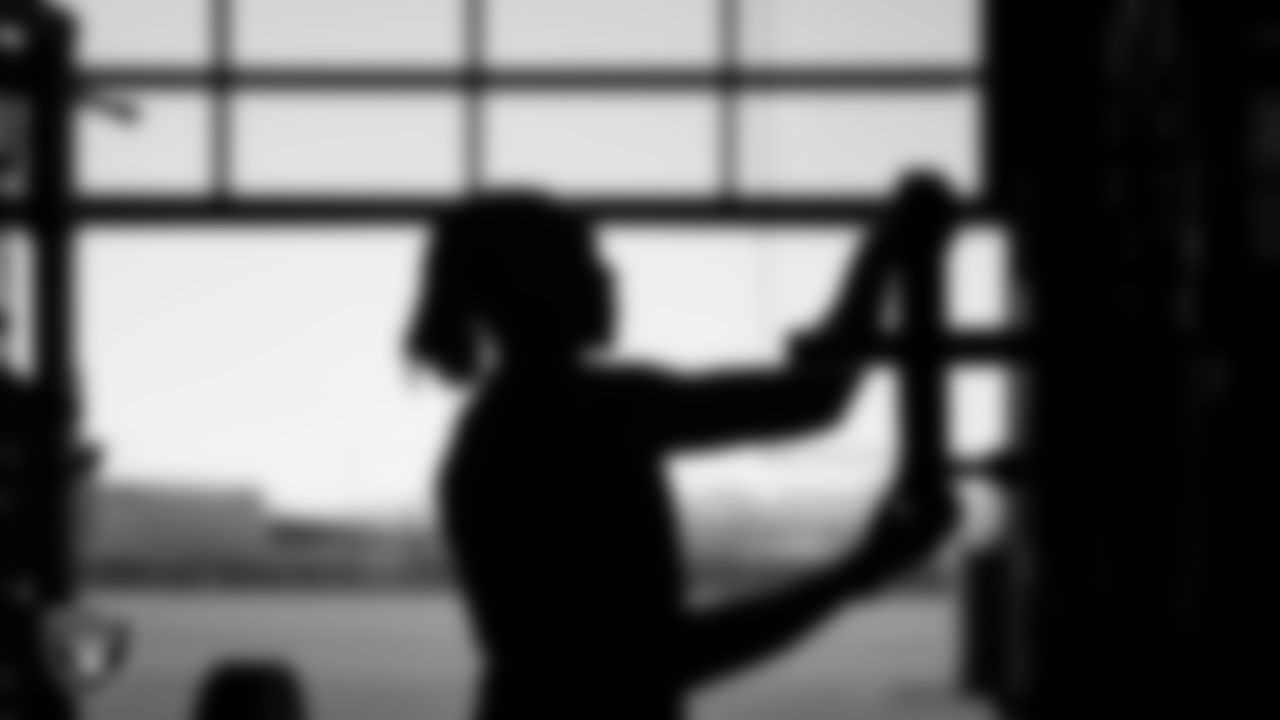
Las Vegas Raiders athletic training assistant Aaron McDaniel at a workout during phase one of the offseason program at Intermountain Health Performance Center.

Las Vegas Raiders quarterback Carter Bradley (14) and quarterback Aidan O'Connell (12) at a workout during phase one of the offseason program at Intermountain Health Performance Center.
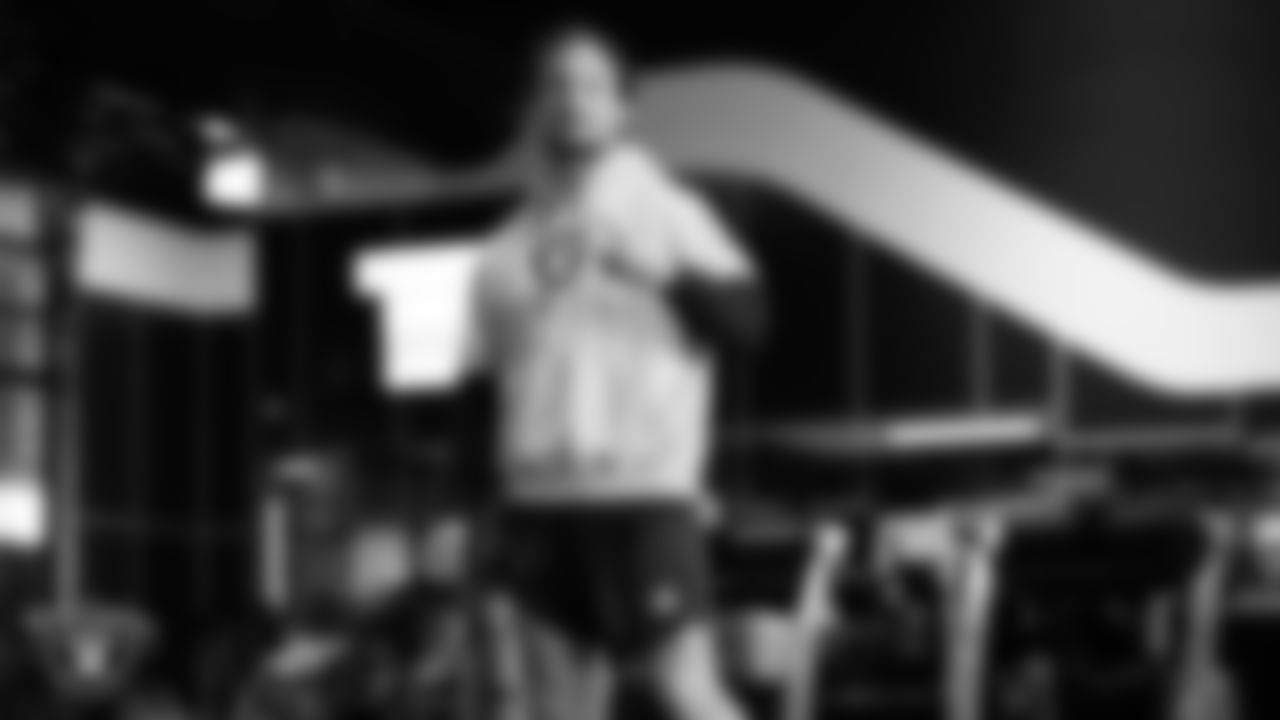
Las Vegas Raiders running back Dylan Laube (23) at a workout during phase one of the offseason program at Intermountain Health Performance Center.

Las Vegas Raiders guard Jackson Powers-Johnson (58) at a workout during phase one of the offseason program at Intermountain Health Performance Center.

Las Vegas Raiders running back Raheem Mostert (31) at a workout during phase one of the offseason program at Intermountain Health Performance Center.

Las Vegas Raiders running back Raheem Mostert (31) at a workout during phase one of the offseason program at Intermountain Health Performance Center.

Las Vegas Raiders guard Alex Cappa (65) at a workout during phase one of the offseason program at Intermountain Health Performance Center.
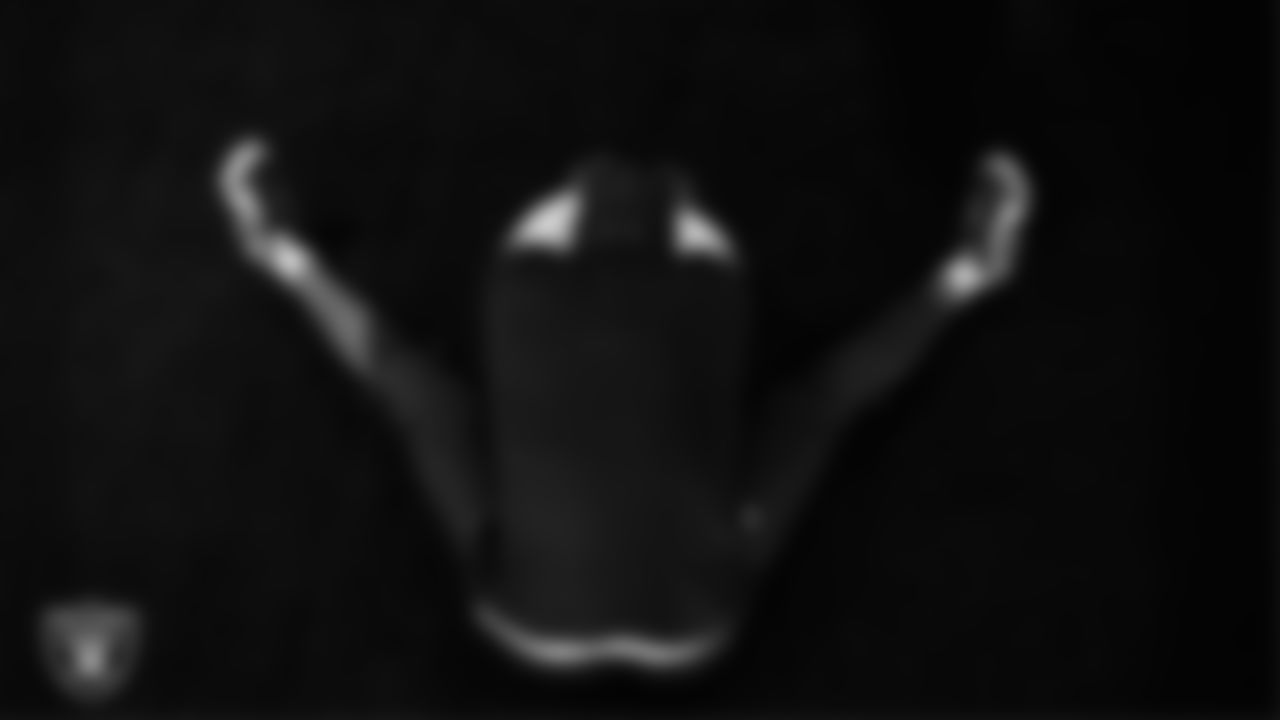
Las Vegas Raiders quarterback Geno Smith (7) at a workout during phase one of the offseason program at Intermountain Health Performance Center.
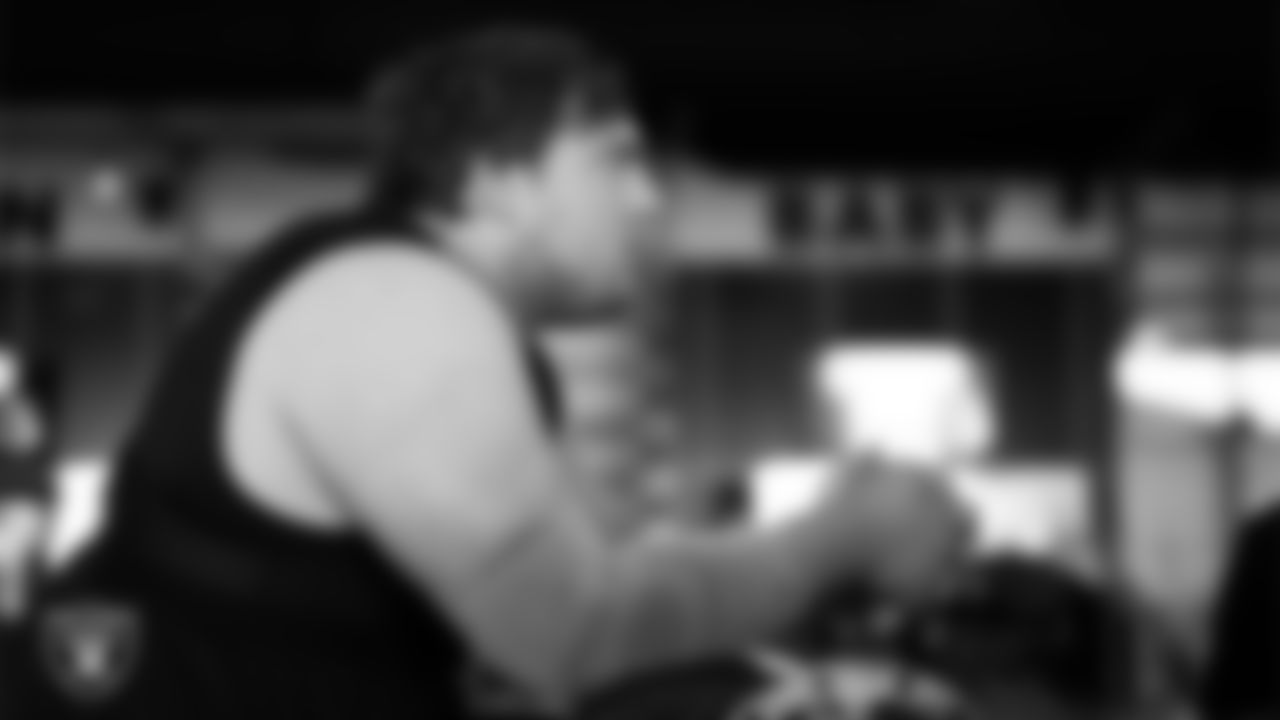
Las Vegas Raiders guard Jackson Powers-Johnson (58) at a workout during phase one of the offseason program at Intermountain Health Performance Center.

Las Vegas Raiders running back Isaiah Spiller (35) at a workout during phase one of the offseason program at Intermountain Health Performance Center.
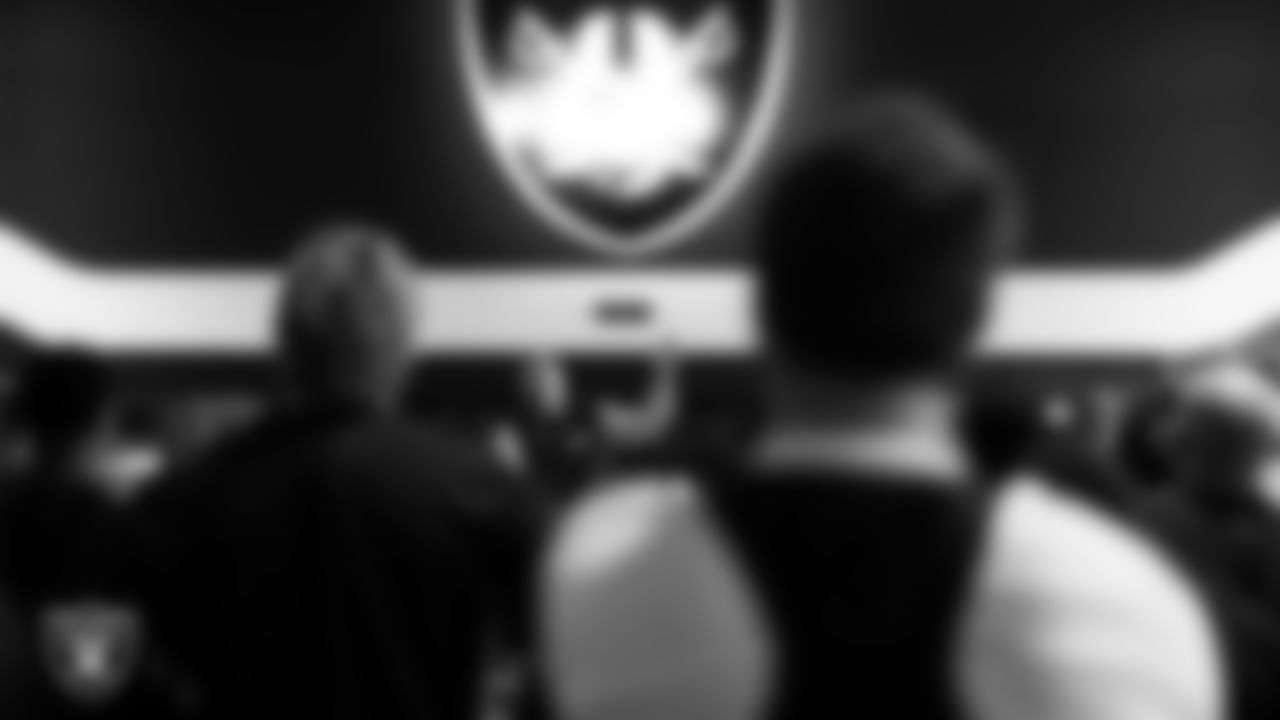
Las Vegas Raiders head strength and conditioning coach A.J. Neibel at a workout during phase one of the offseason program at Intermountain Health Performance Center.
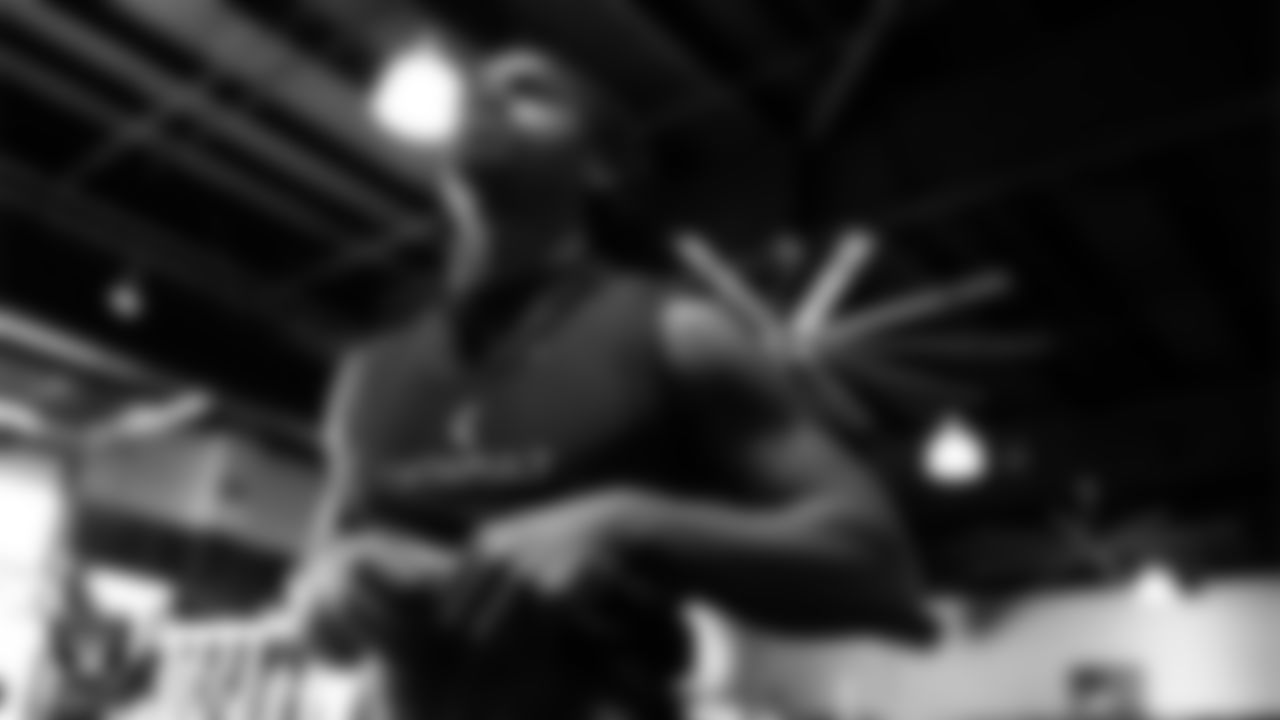
Las Vegas Raiders wide receiver Kristian Wilkerson (83) at a workout during phase one of the offseason program at Intermountain Health Performance Center.

Las Vegas Raiders guard Alex Cappa (65) at a workout during phase one of the offseason program at Intermountain Health Performance Center.

Las Vegas Raiders running back Sincere McCormick (28) at a workout during phase one of the offseason program at Intermountain Health Performance Center.
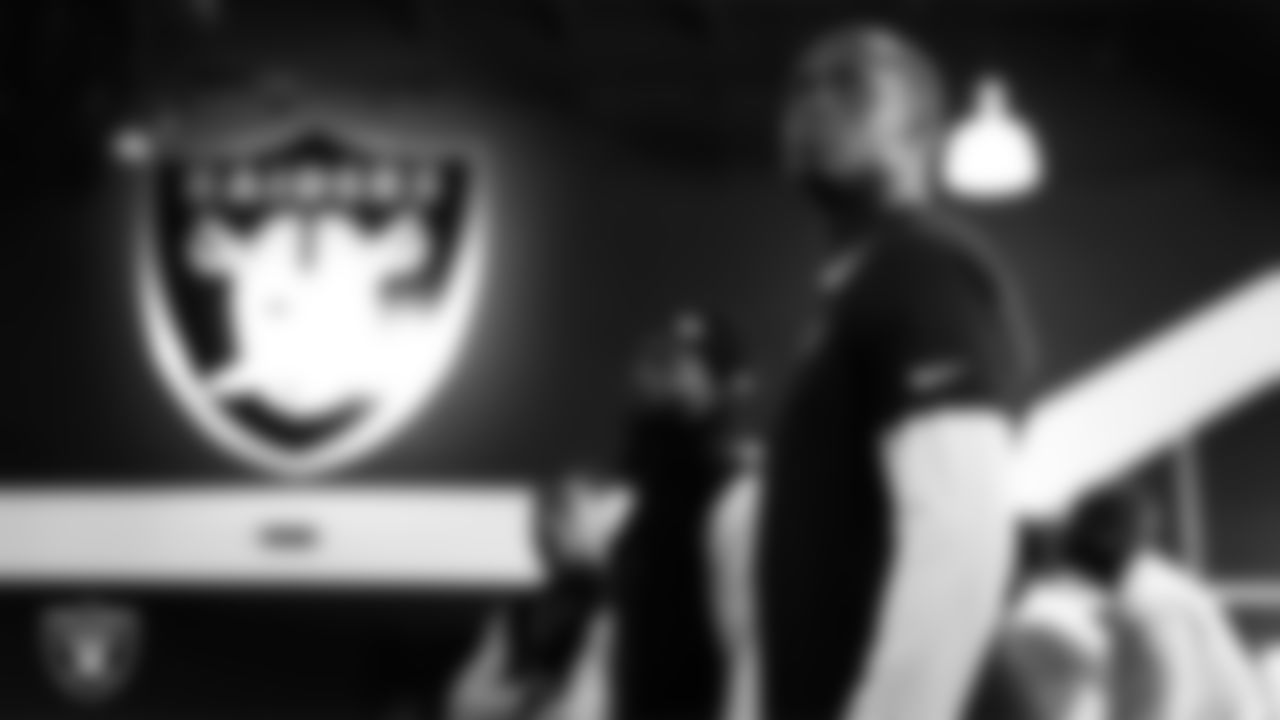
Las Vegas Raiders quarterback Geno Smith (7) at a workout during phase one of the offseason program at Intermountain Health Performance Center.

Las Vegas Raiders punter AJ Cole (6) at a workout during phase one of the offseason program at Intermountain Health Performance Center.
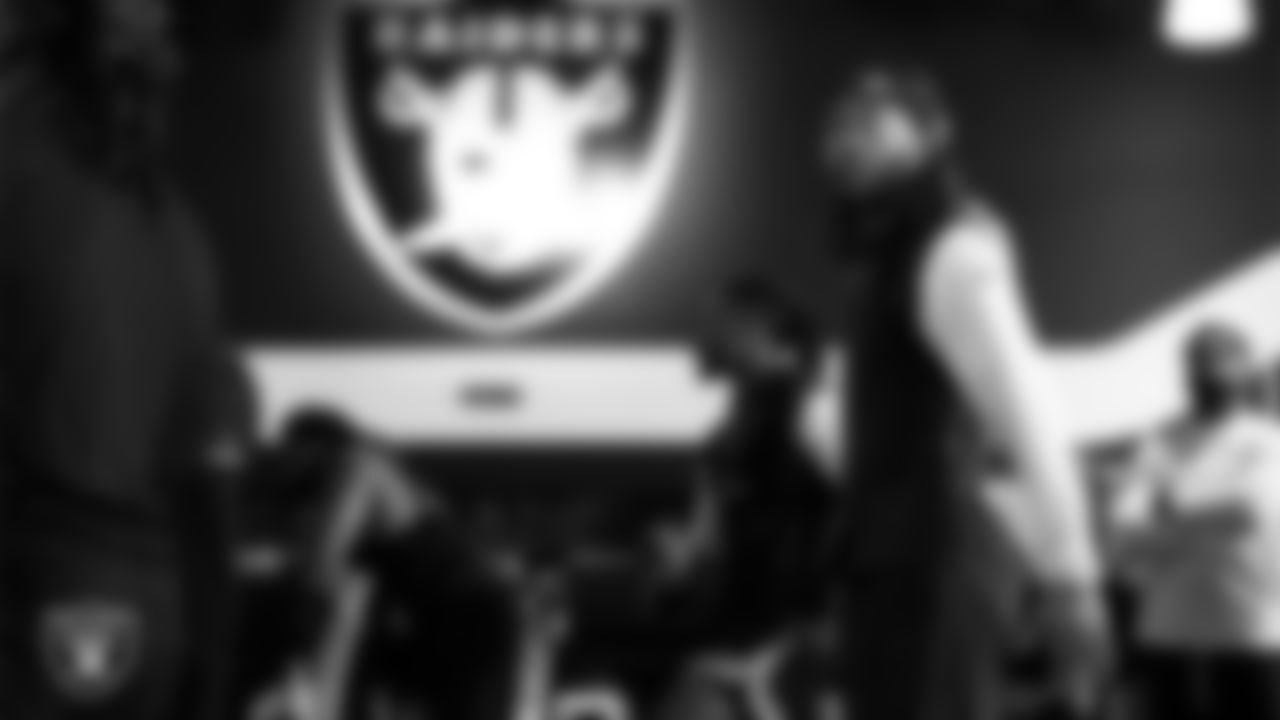
Las Vegas Raiders wide receiver Jakobi Meyers (16) at a workout during phase one of the offseason program at Intermountain Health Performance Center.
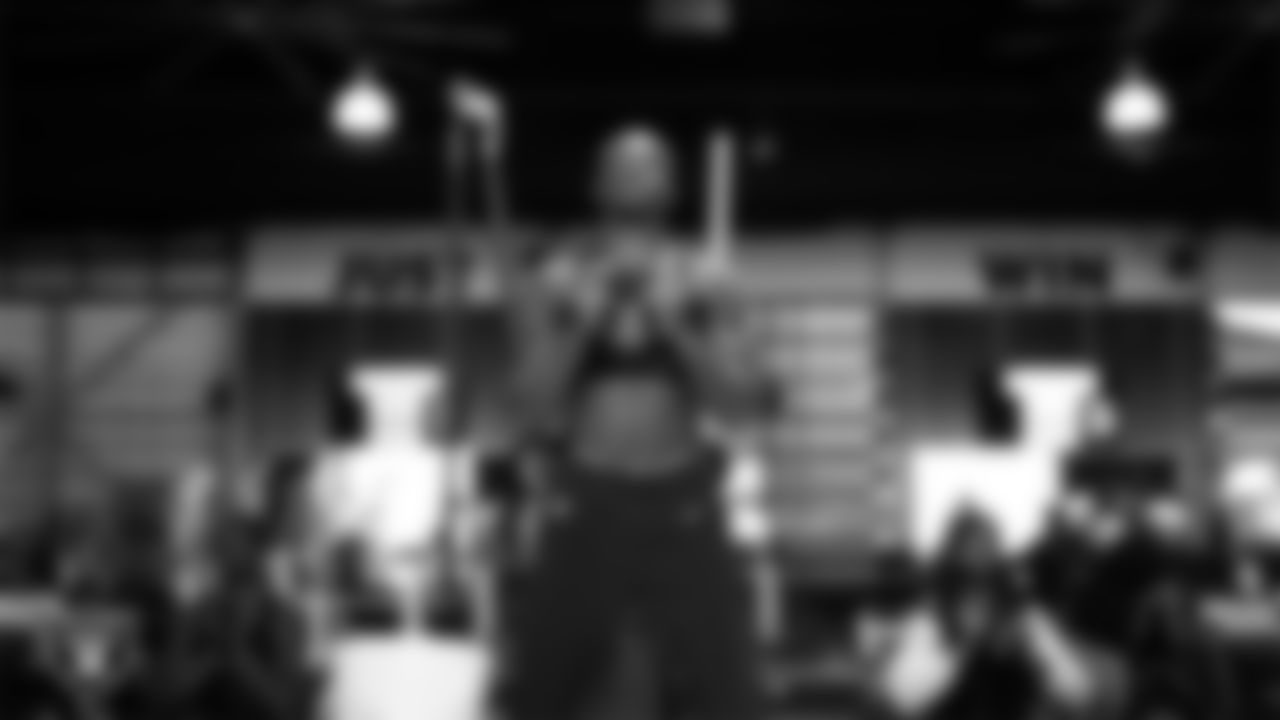
Las Vegas Raiders wide receiver Ramel Keyton (82) at a workout during phase one of the offseason program at Intermountain Health Performance Center.

Las Vegas Raiders wide receiver Jeff Foreman at a workout during phase one of the offseason program at Intermountain Health Performance Center.
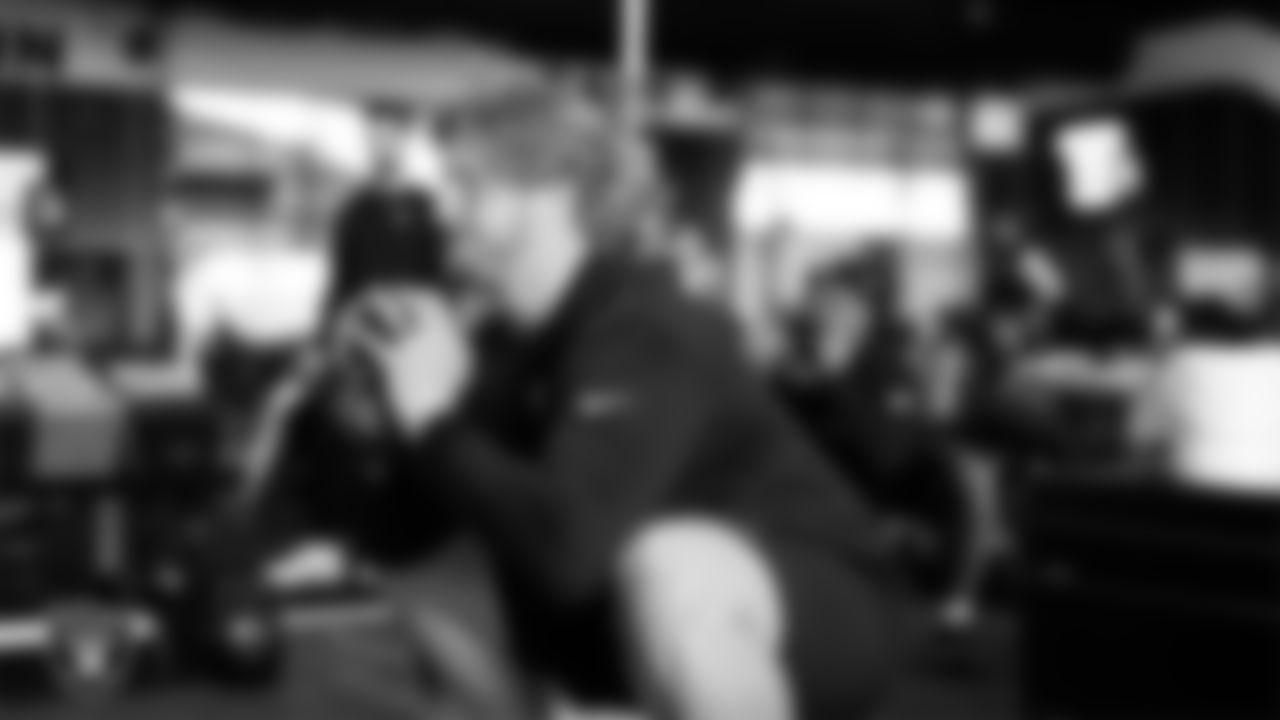
Las Vegas Raiders guard Alex Cappa (65) at a workout during phase one of the offseason program at Intermountain Health Performance Center.

Las Vegas Raiders tackle Thayer Munford Jr. (77) at a workout during phase one of the offseason program at Intermountain Health Performance Center.
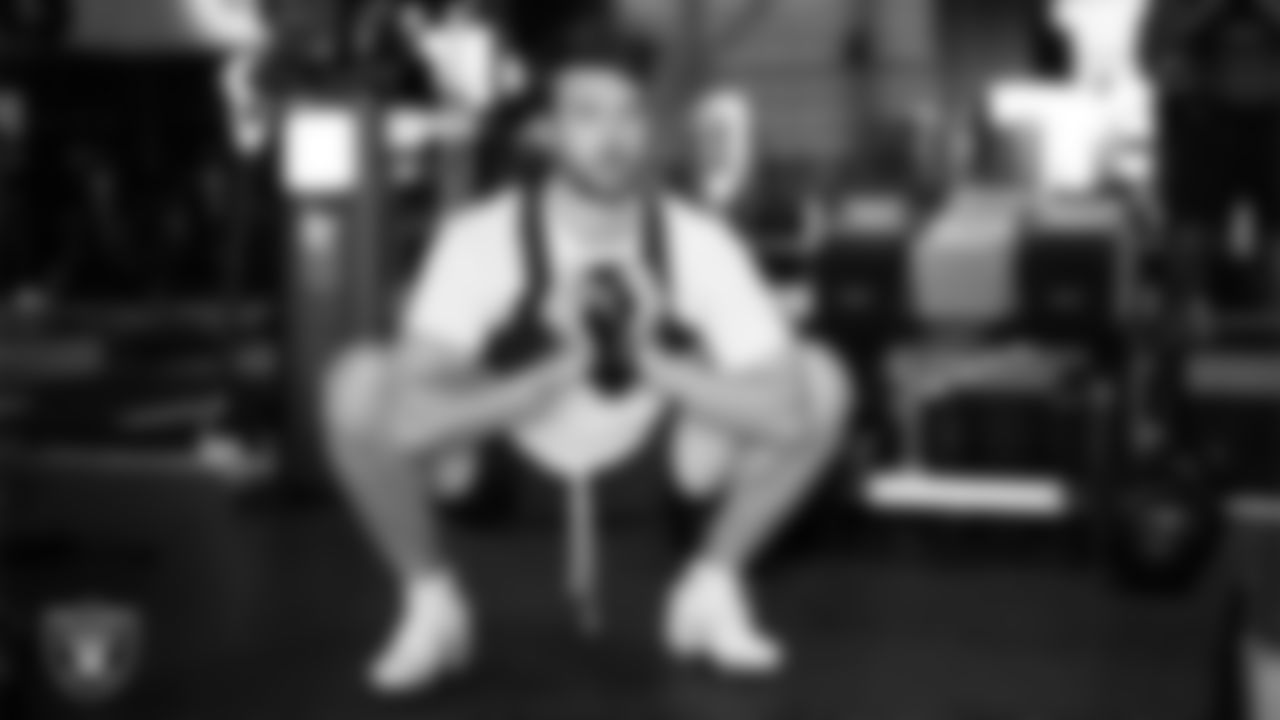
Las Vegas Raiders quarterback Carter Bradley (14) at a workout during phase one of the offseason program at Intermountain Health Performance Center.
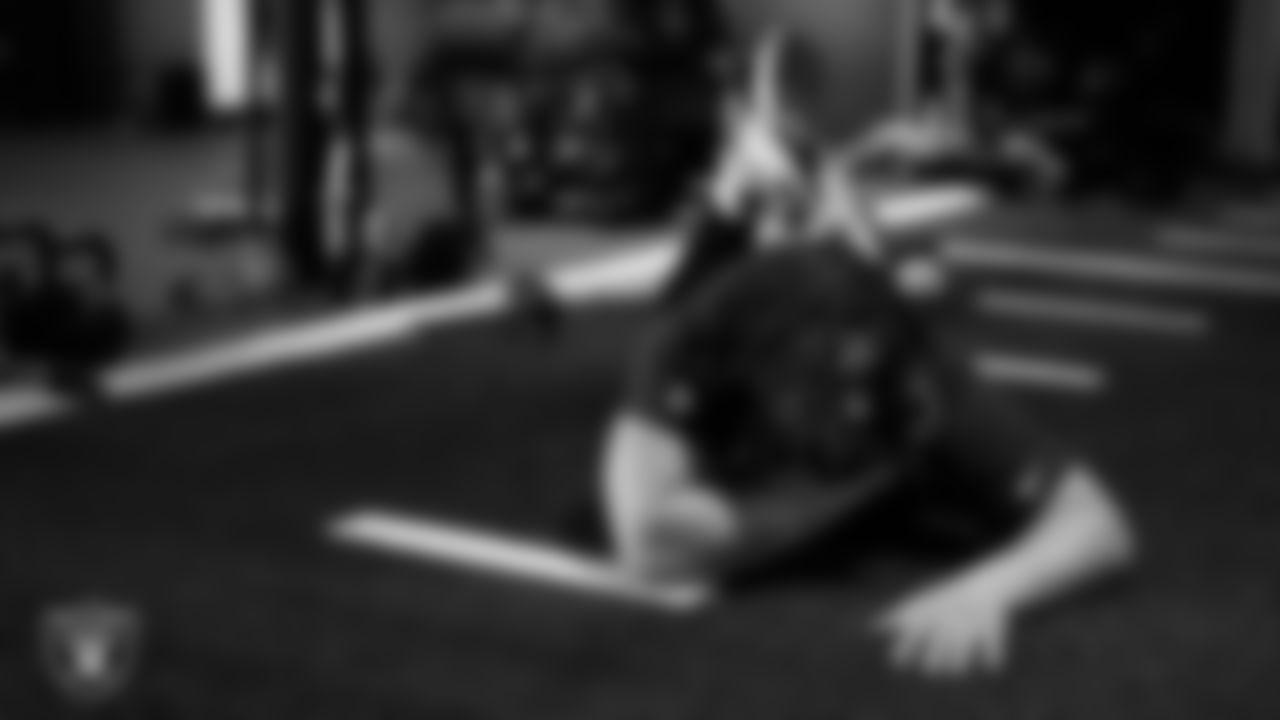
Las Vegas Raiders guard Dylan Parham (66) at a workout during phase one of the offseason program at Intermountain Health Performance Center.
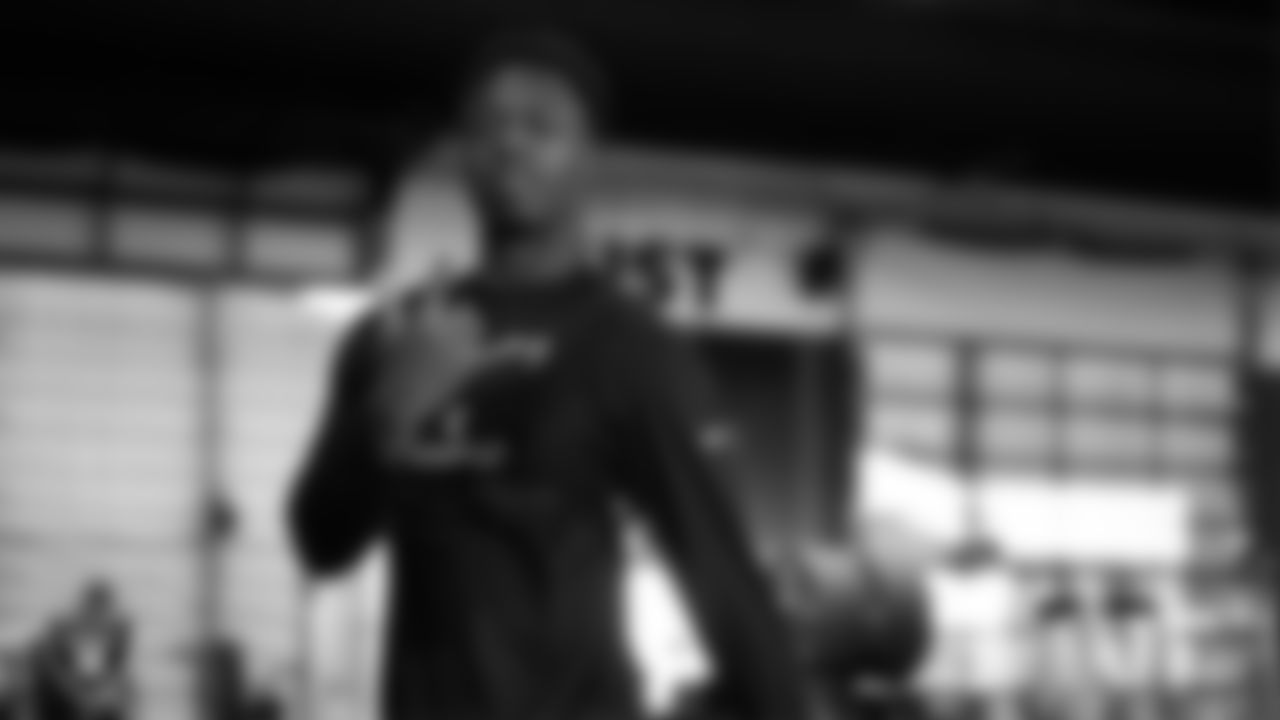
Las Vegas Raiders wide receiver Shedrick Jackson (4) at a workout during phase one of the offseason program at Intermountain Health Performance Center.
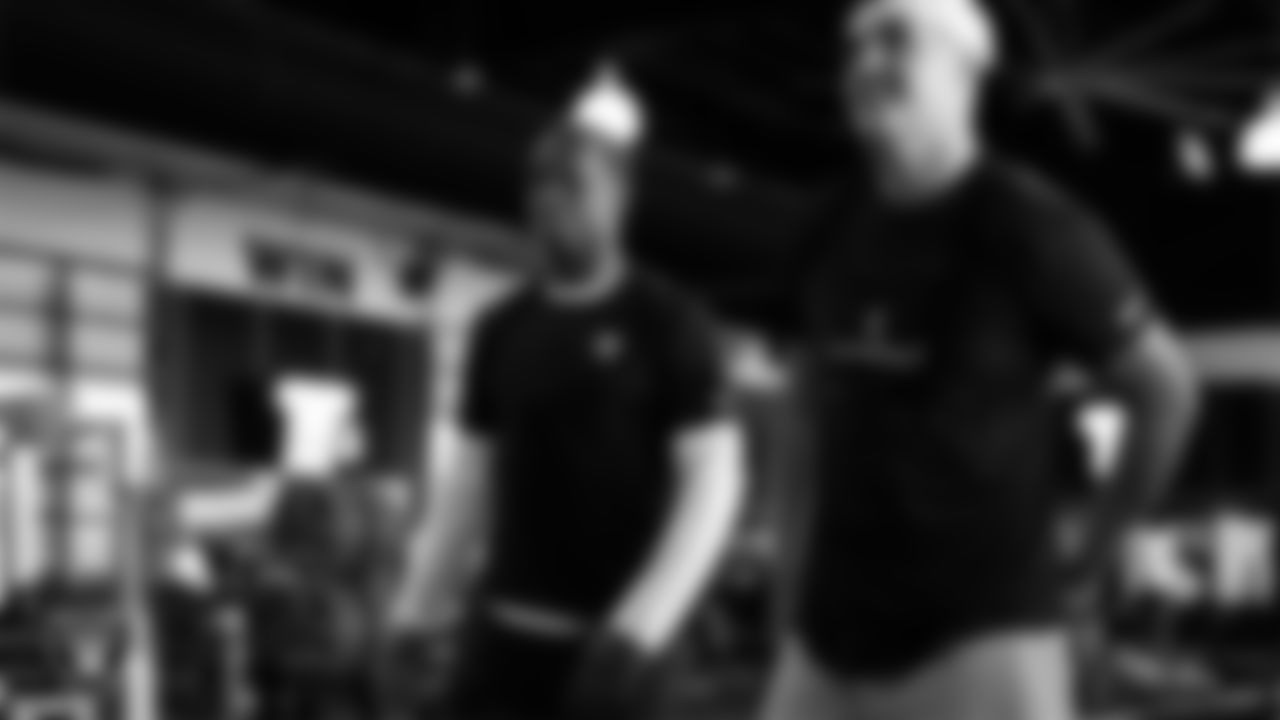
Las Vegas Raiders quarterback Geno Smith (7) at a workout during phase one of the offseason program at Intermountain Health Performance Center.
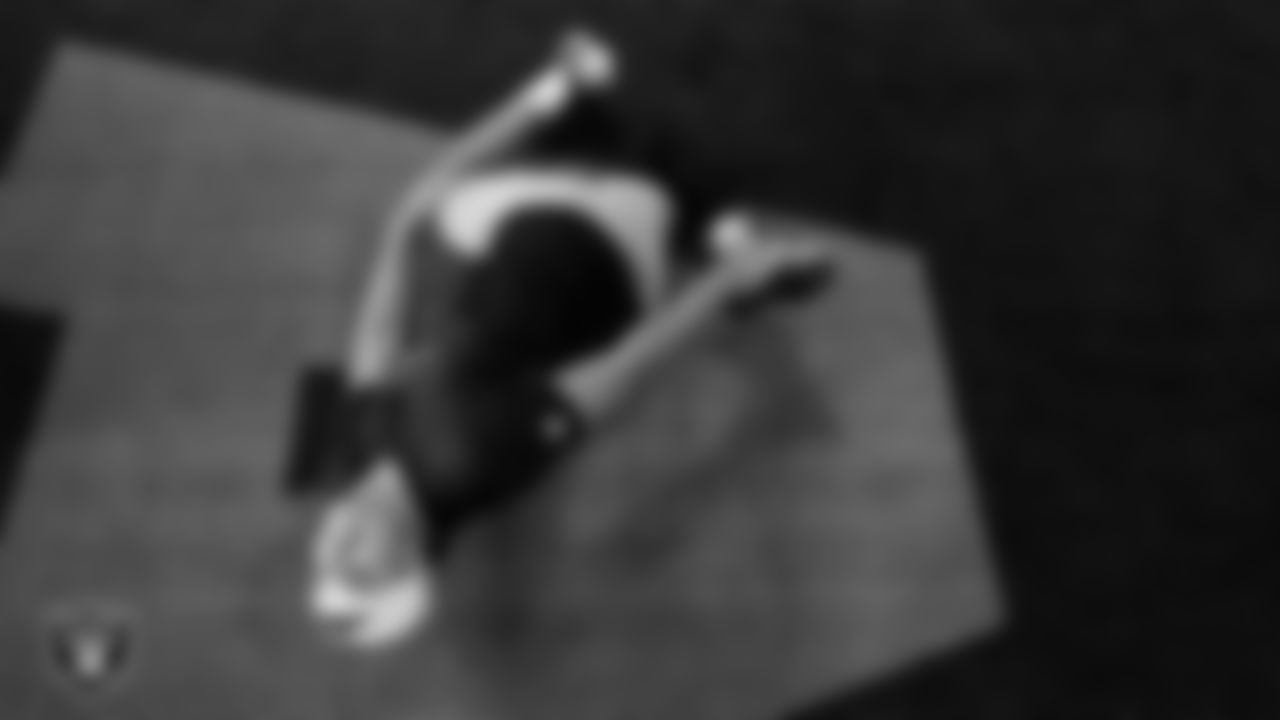
Las Vegas Raiders quarterback Aidan O'Connell (12) at a workout during phase one of the offseason program at Intermountain Health Performance Center.

Las Vegas Raiders running back Isaiah Spiller (35) at a workout during phase one of the offseason program at Intermountain Health Performance Center.
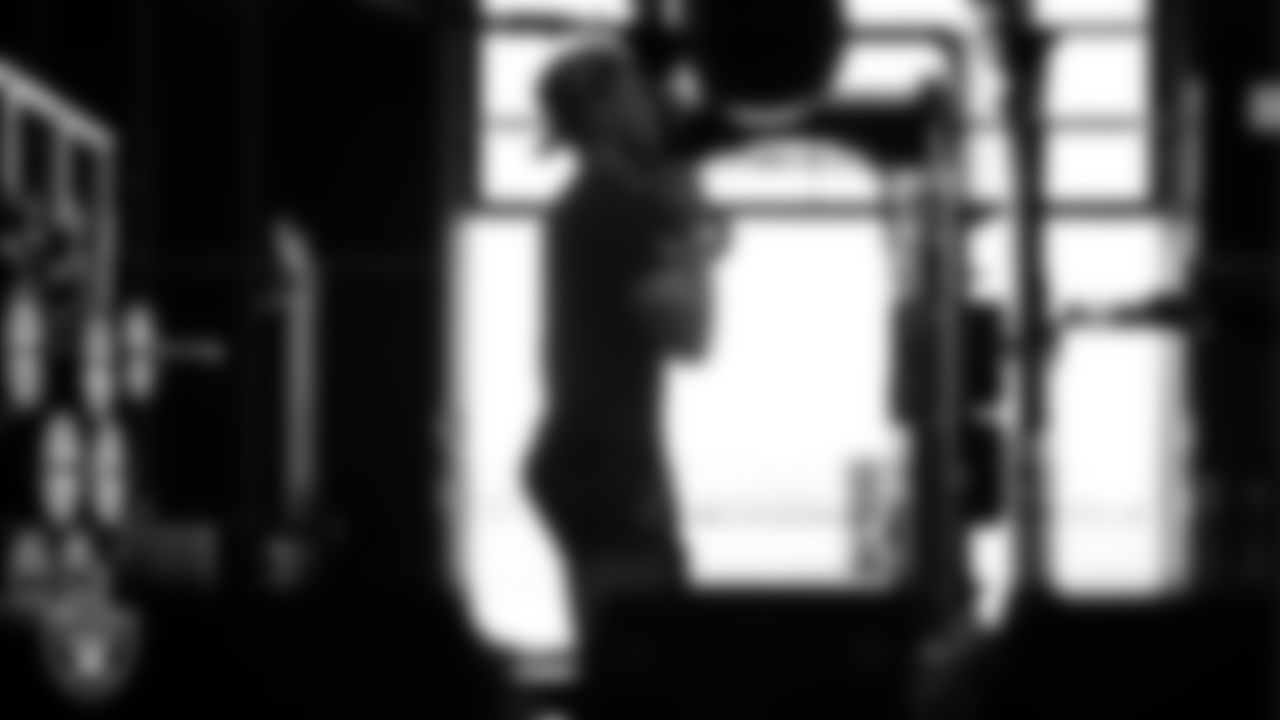
Las Vegas Raiders wide receiver Kyle Philips (15) at a workout during phase one of the offseason program at Intermountain Health Performance Center.

Las Vegas Raiders wide receiver Alex Bachman (81) at a workout during phase one of the offseason program at Intermountain Health Performance Center.
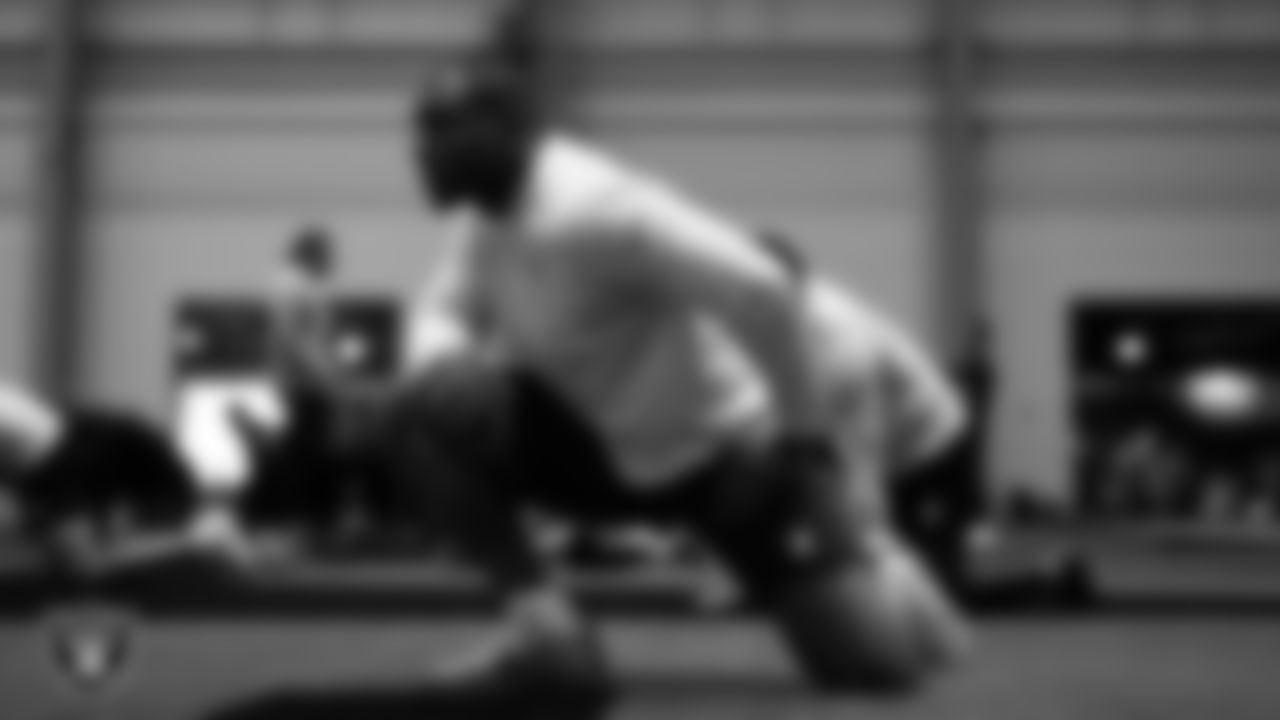
Las Vegas Raiders running back Zamir White (3) at a workout during phase one of the offseason program at Intermountain Health Performance Center.

Las Vegas Raiders quarterback Geno Smith (7) at a workout during phase one of the offseason program at Intermountain Health Performance Center.

Las Vegas Raiders wide receiver Tre Tucker (1) at a workout during phase one of the offseason program at Intermountain Health Performance Center.
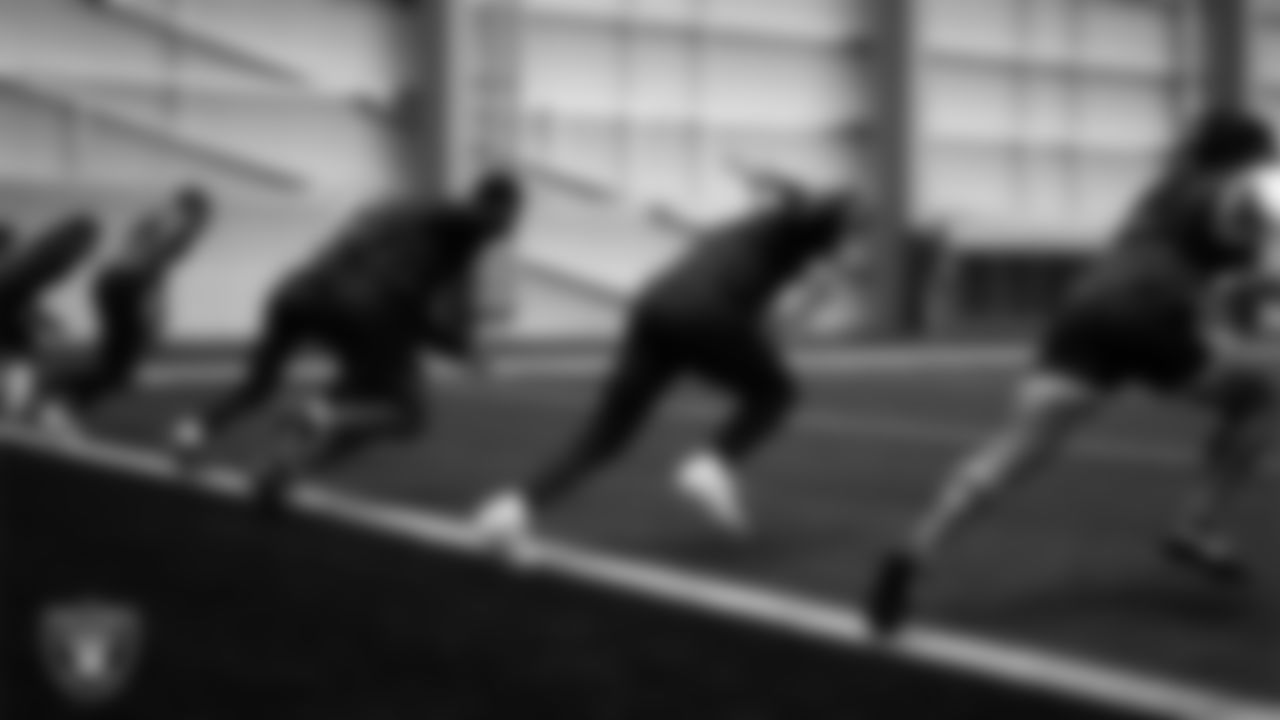
Las Vegas Raiders wide receiver Alex Bachman (81) at a workout during phase one of the offseason program at Intermountain Health Performance Center.

Las Vegas Raiders quarterback Geno Smith (7) at a workout during phase one of the offseason program at Intermountain Health Performance Center.

Las Vegas Raiders quarterback Geno Smith (7) at a workout during phase one of the offseason program at Intermountain Health Performance Center.
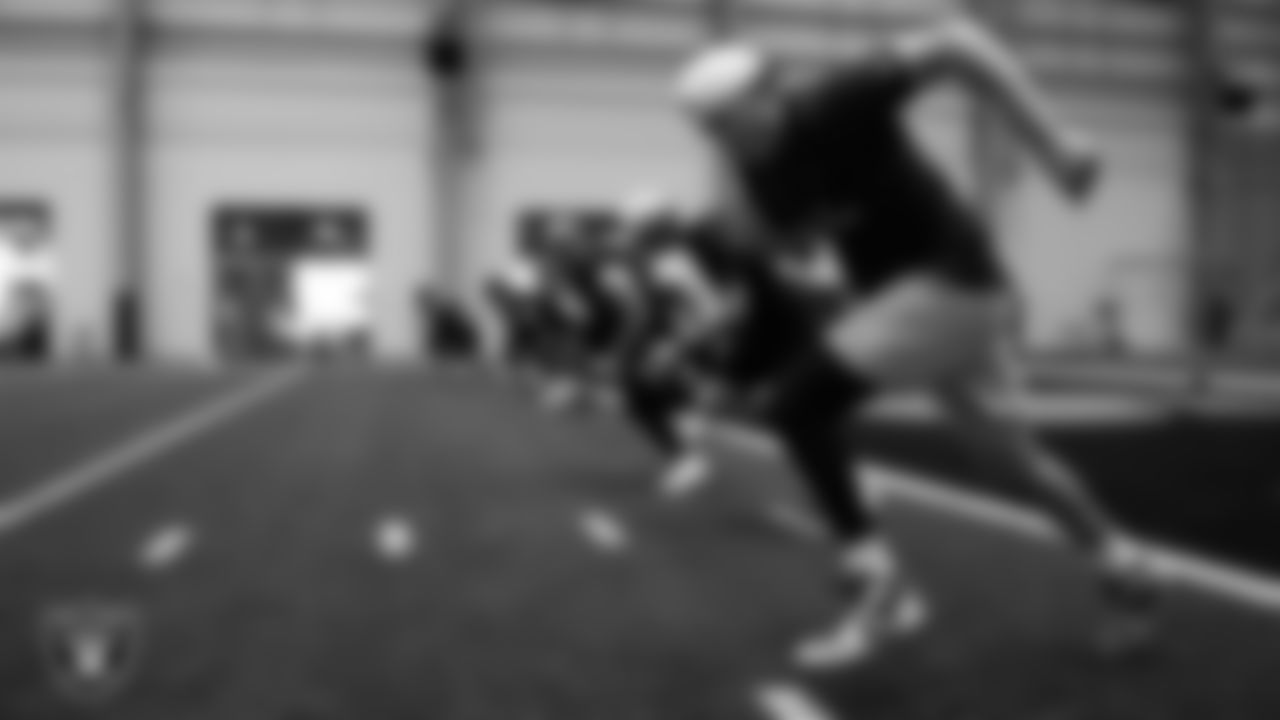
Las Vegas Raiders quarterback Aidan O'Connell (12) at a workout during phase one of the offseason program at Intermountain Health Performance Center.

Las Vegas Raiders running back Raheem Mostert (31) at a workout during phase one of the offseason program at Intermountain Health Performance Center.

Las Vegas Raiders quarterback Carter Bradley (14) at a workout during phase one of the offseason program at Intermountain Health Performance Center.



